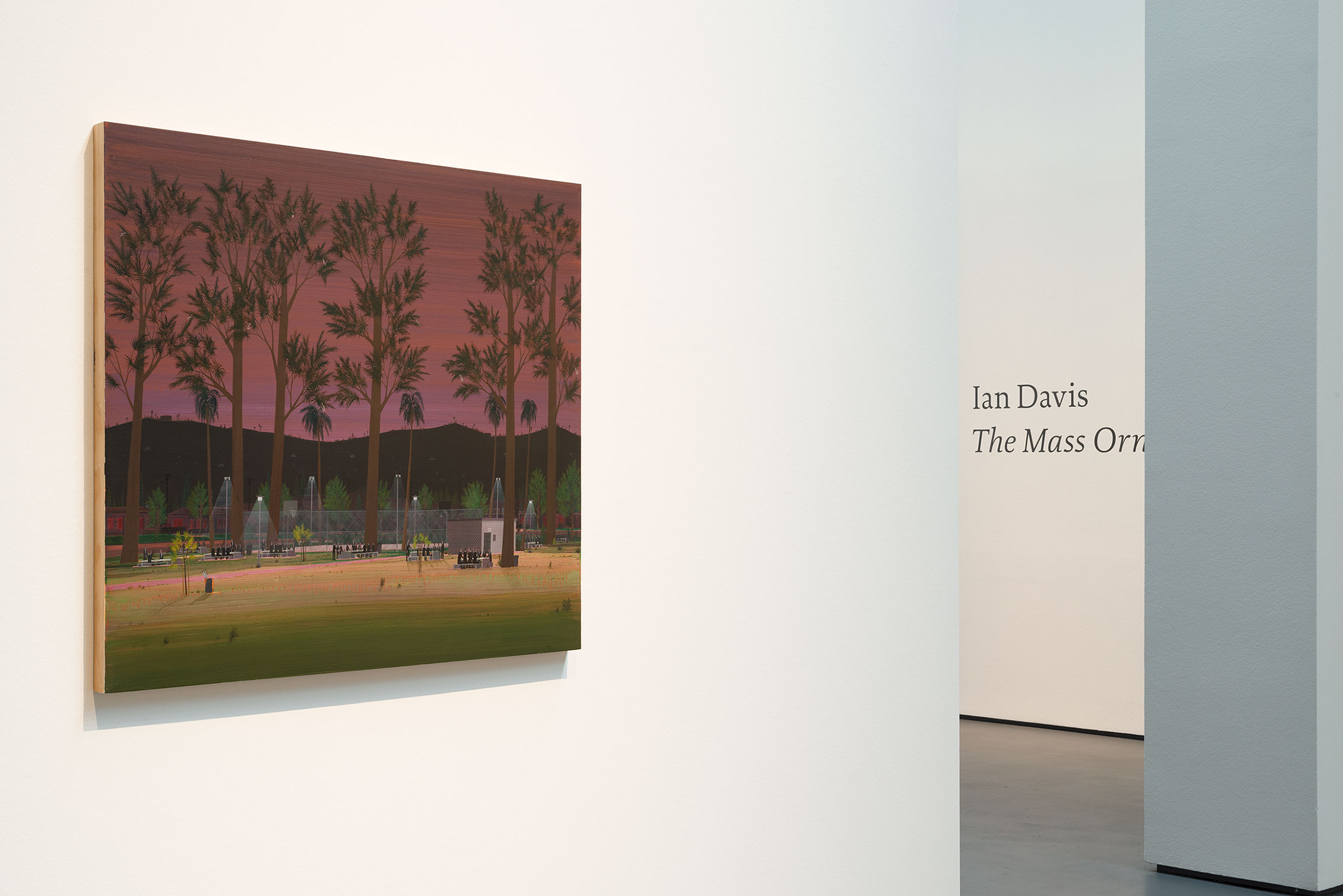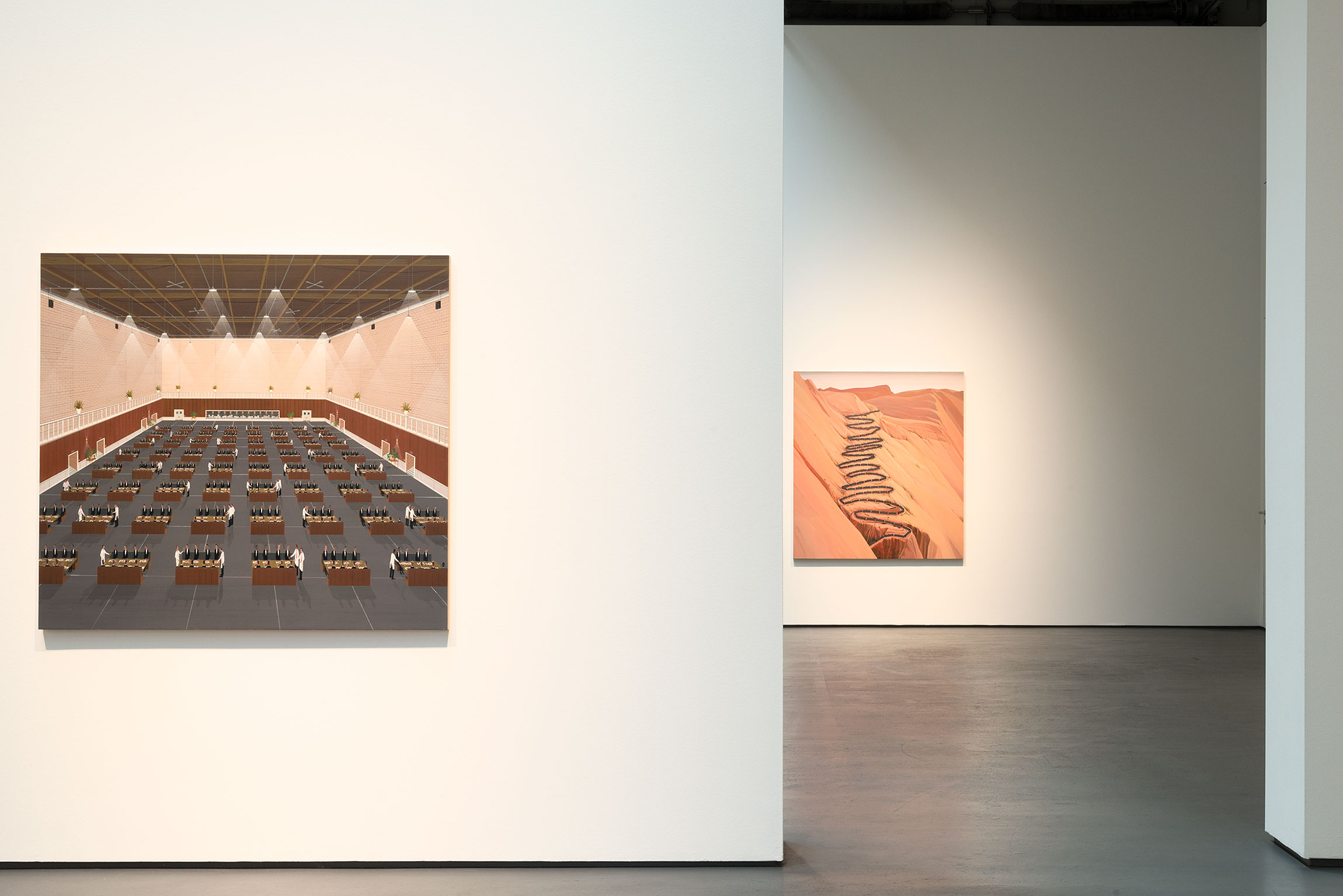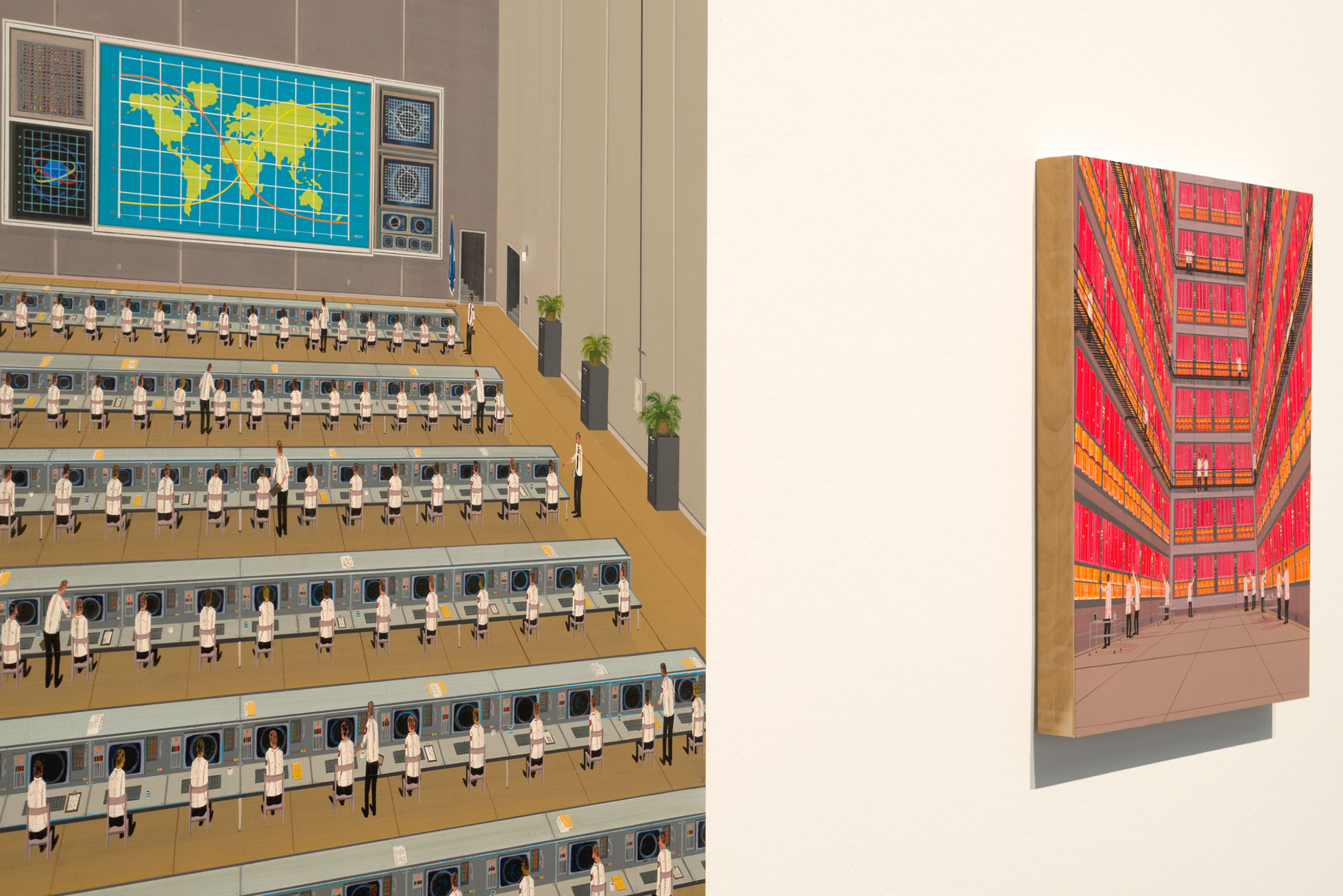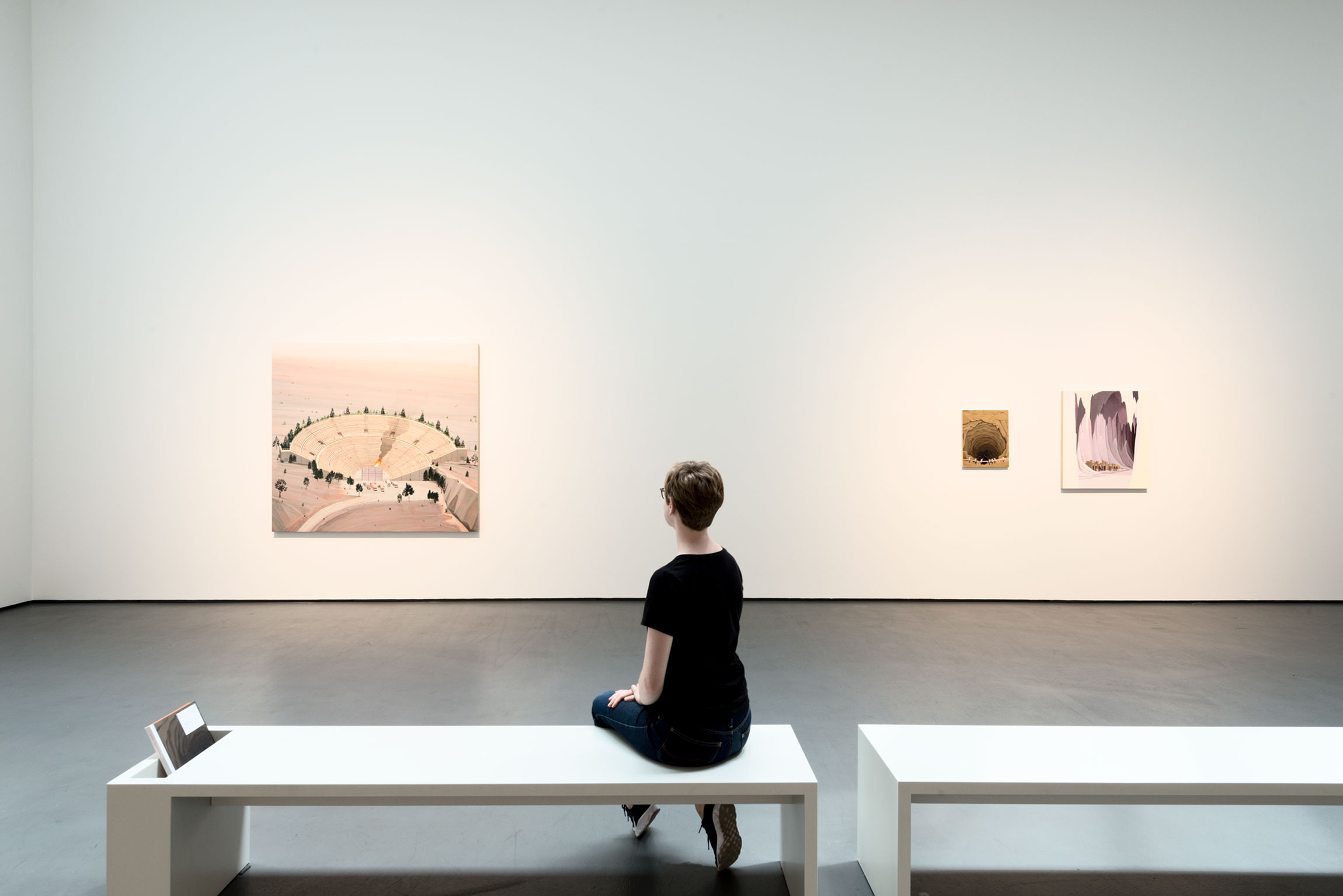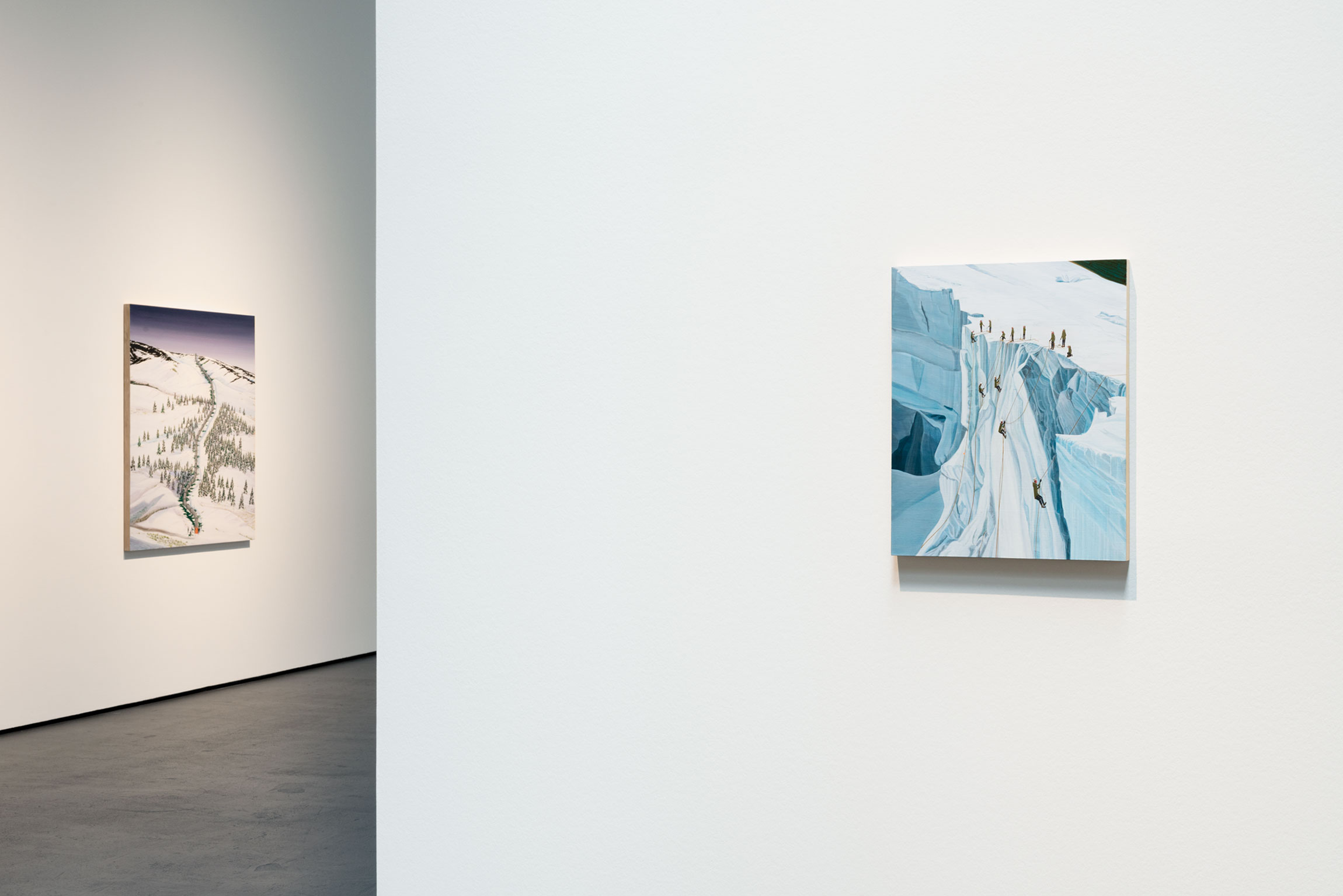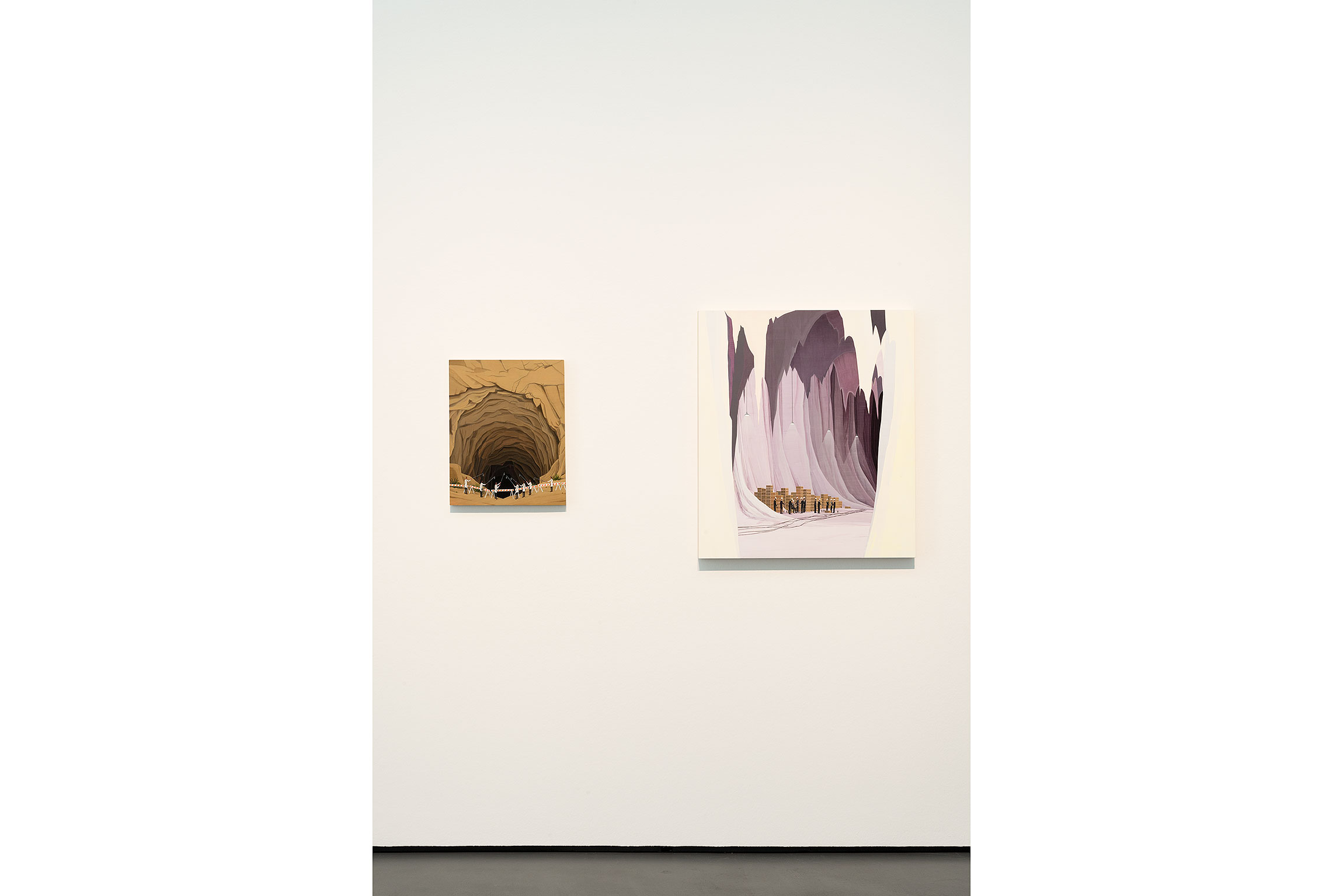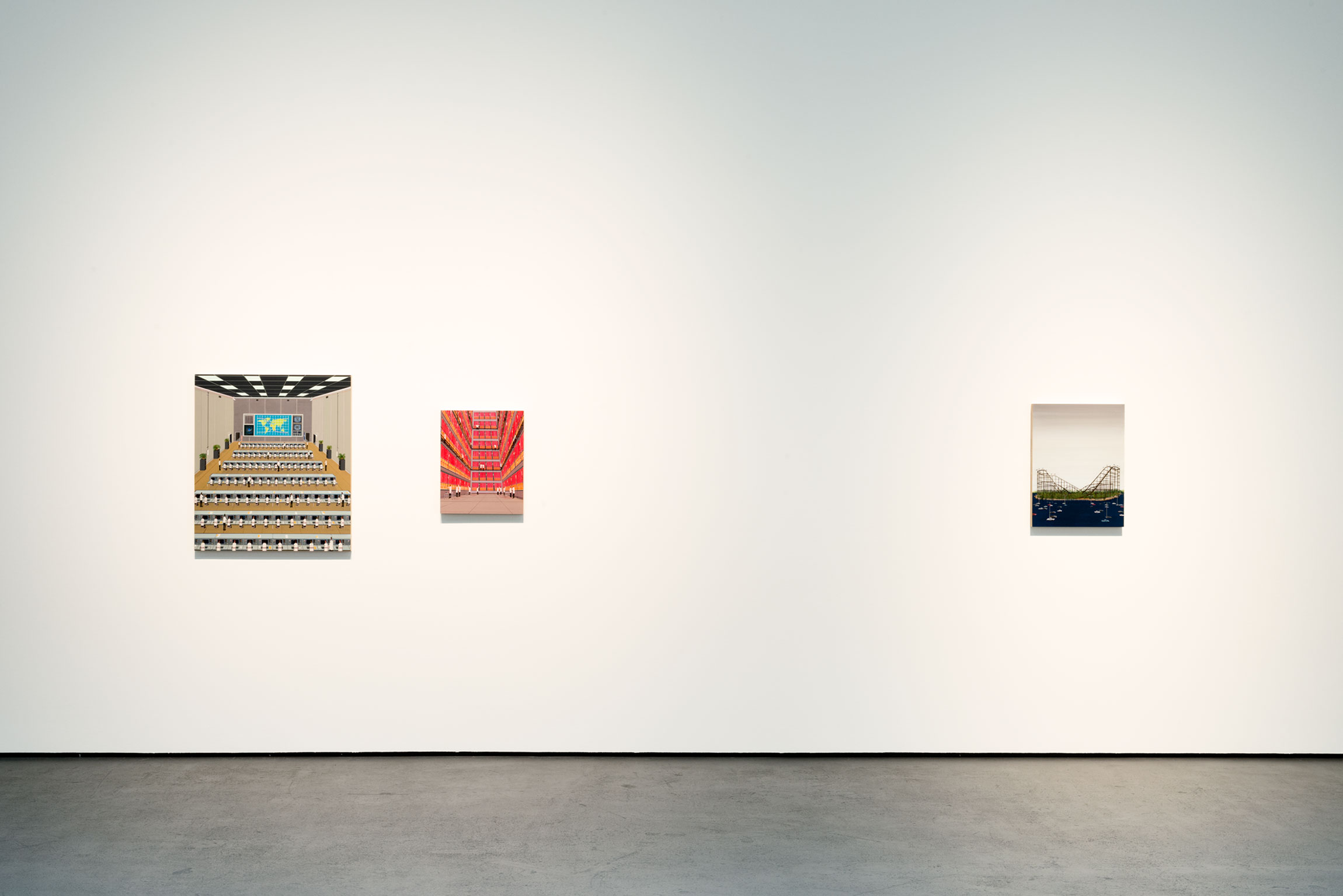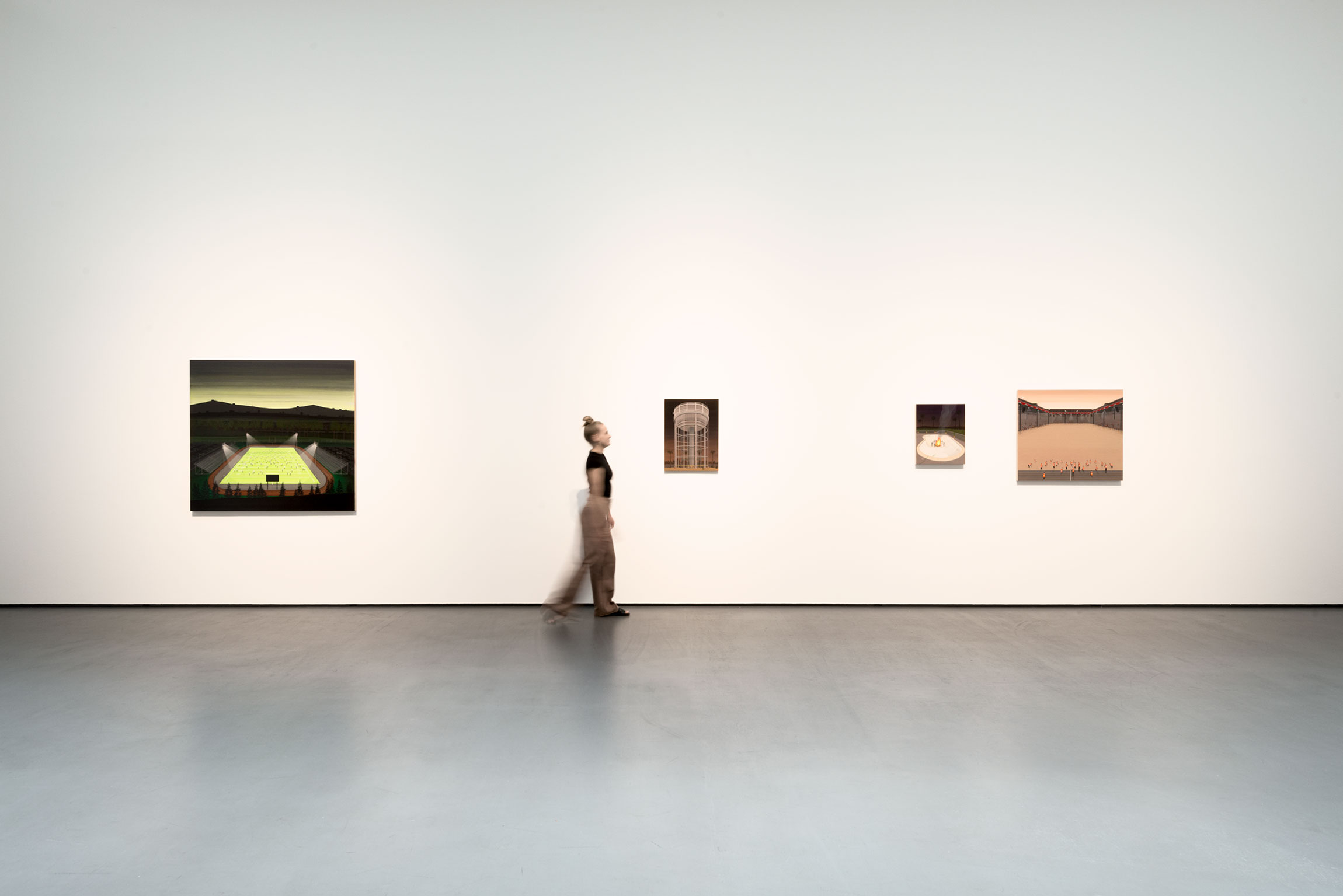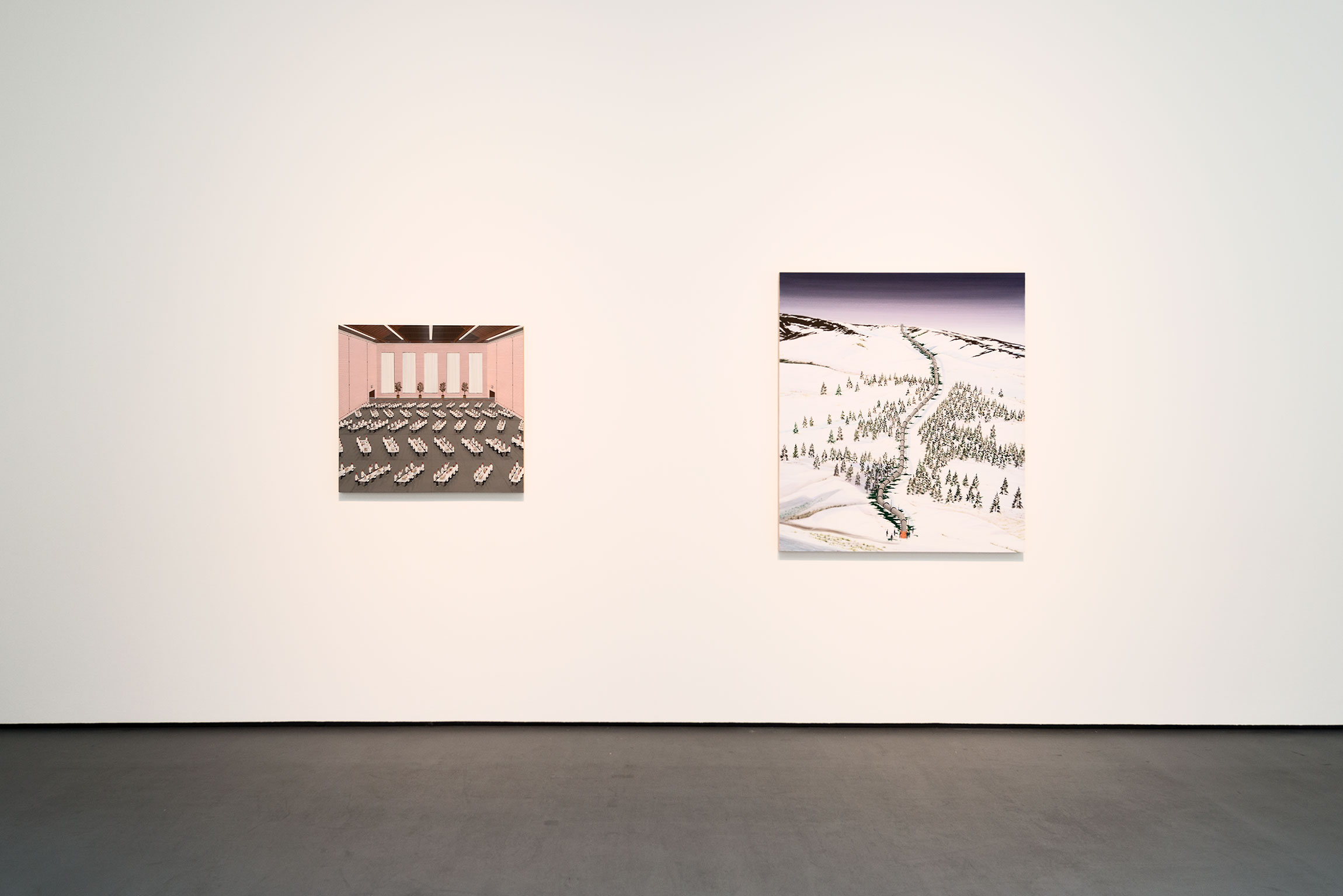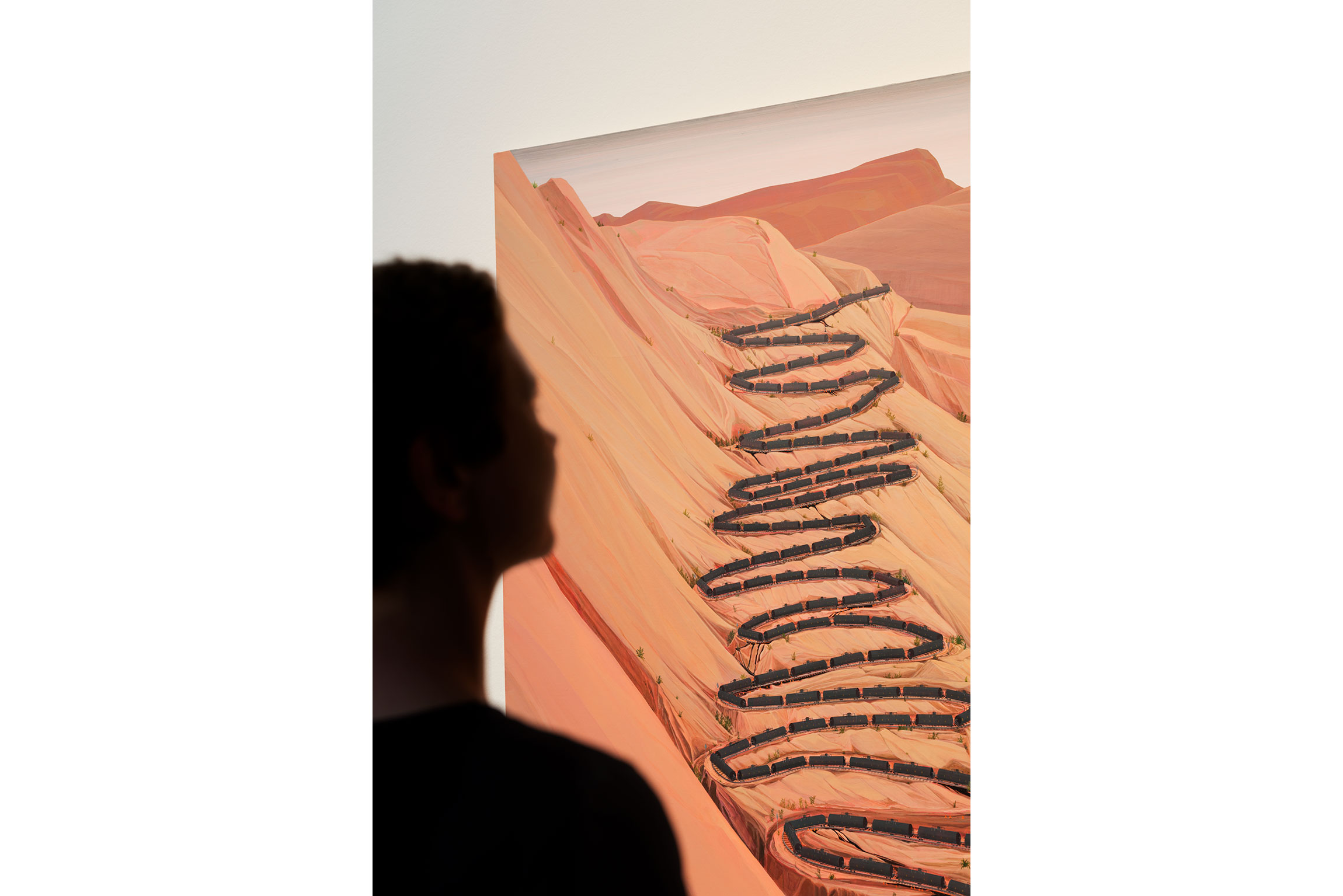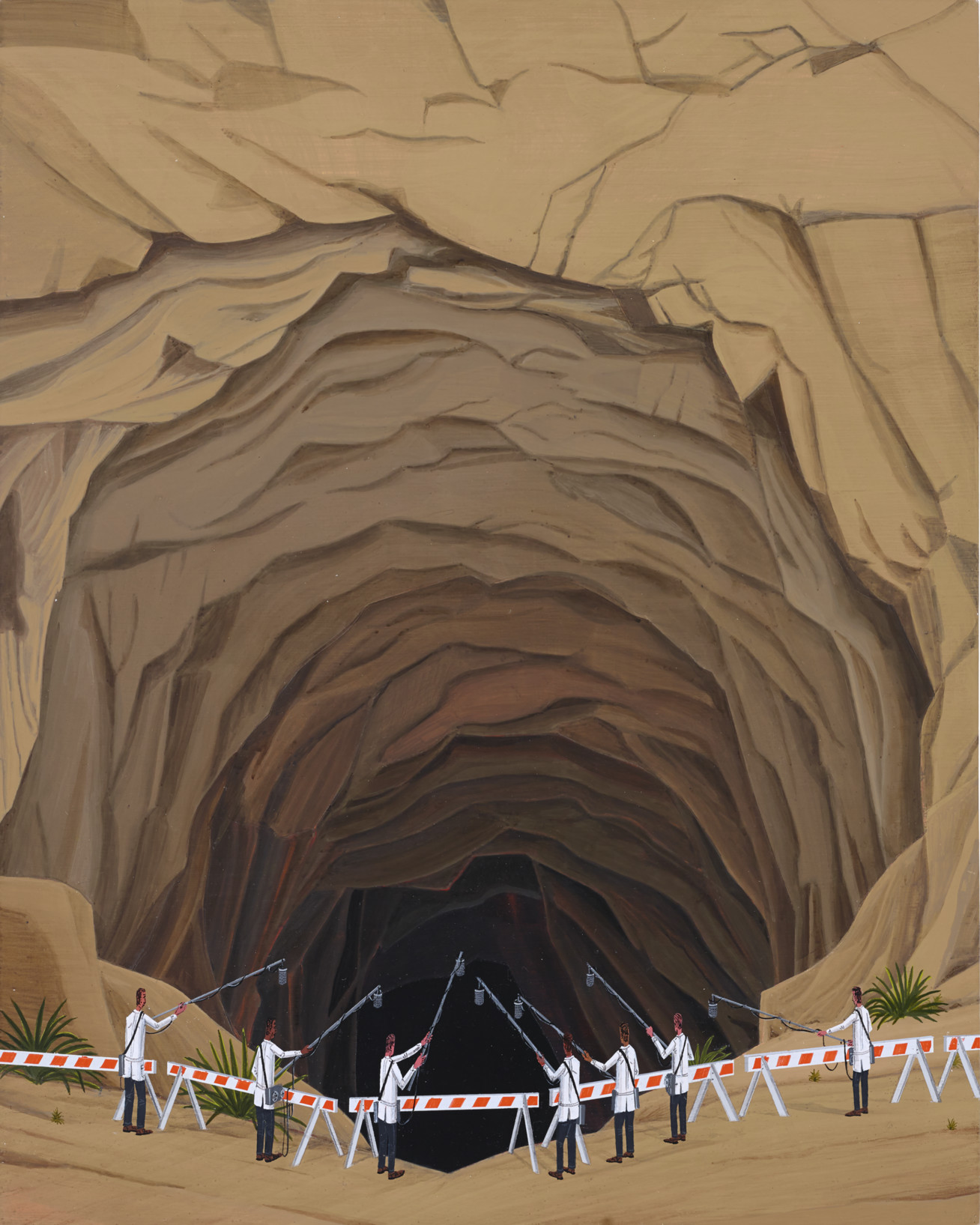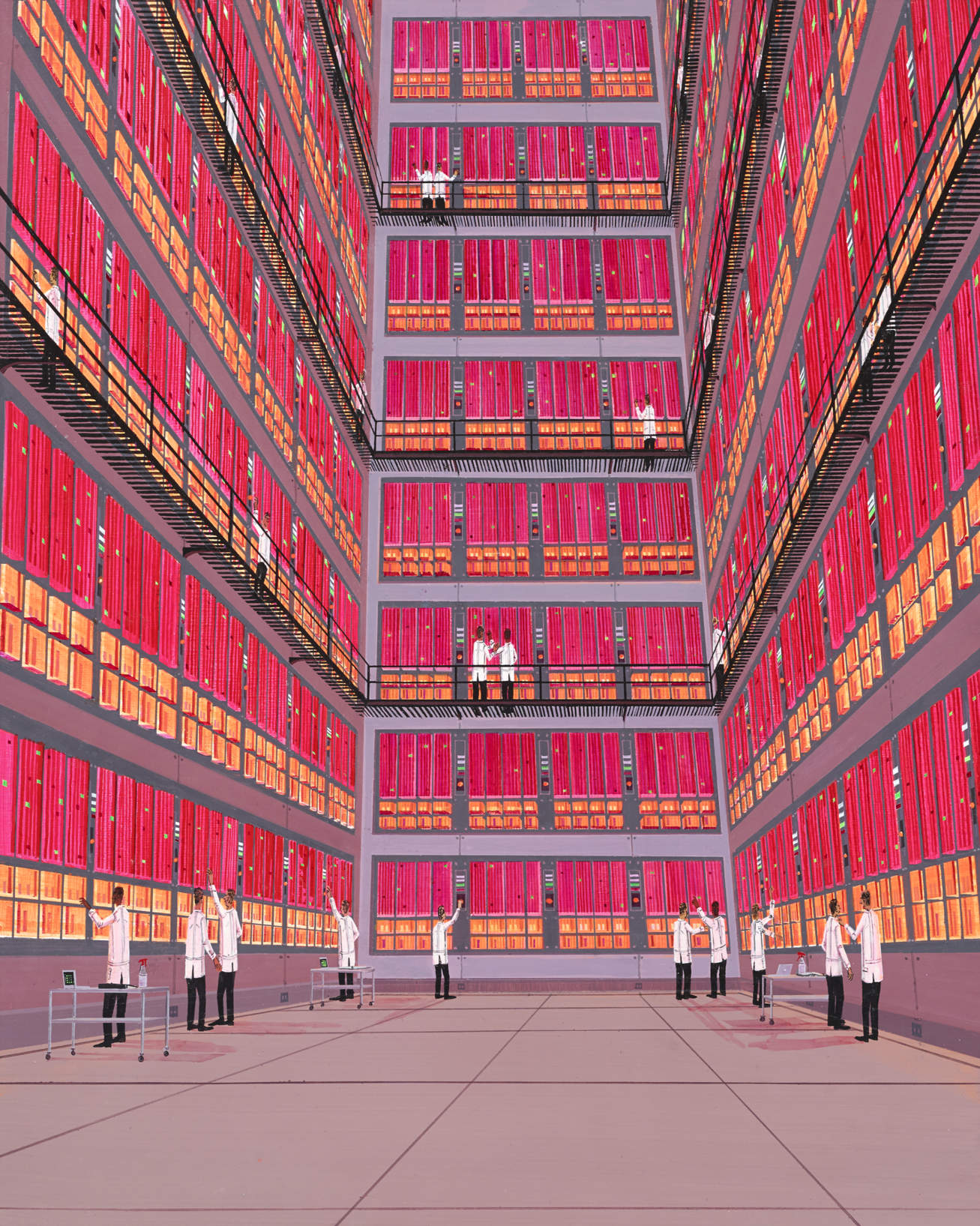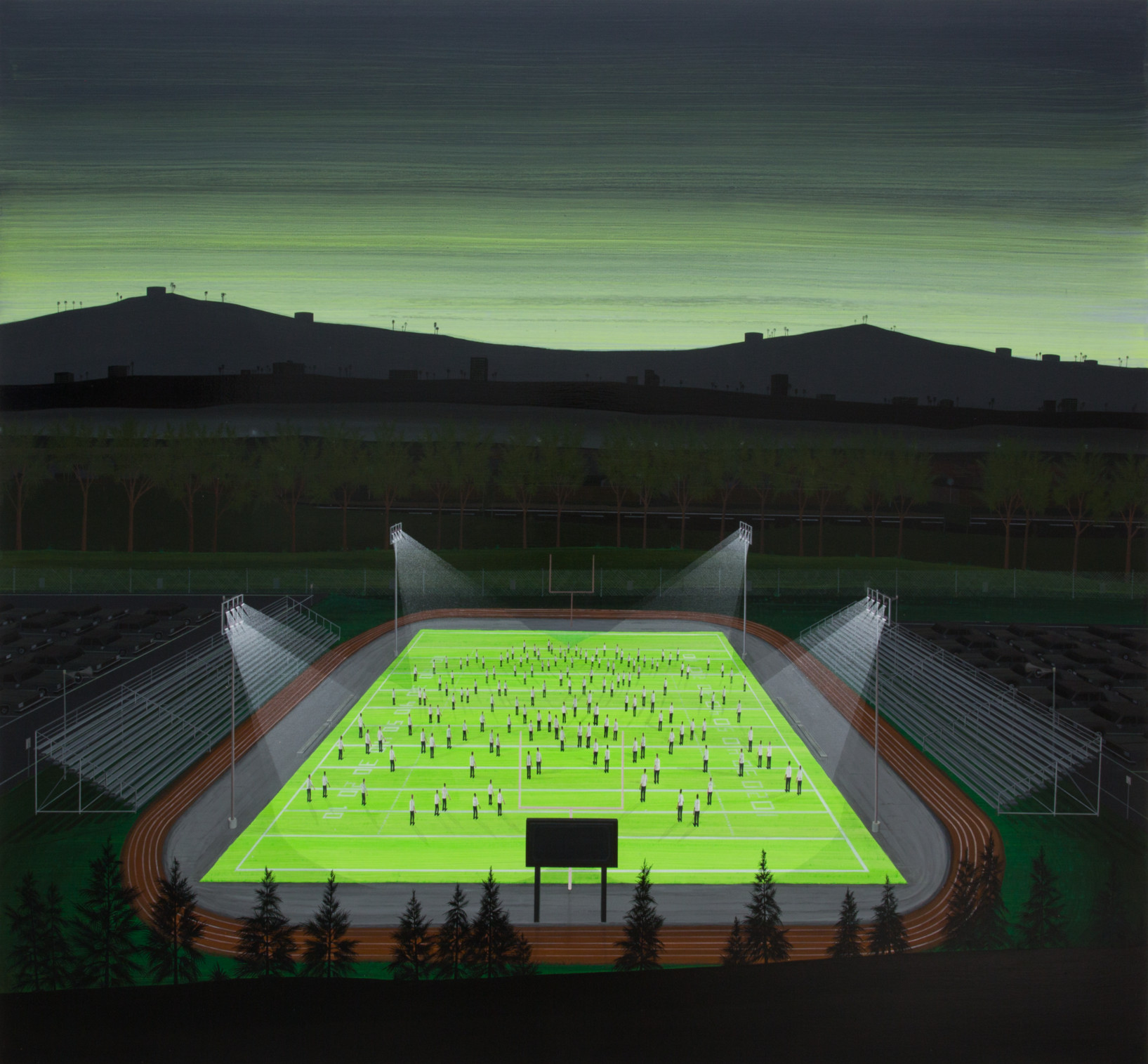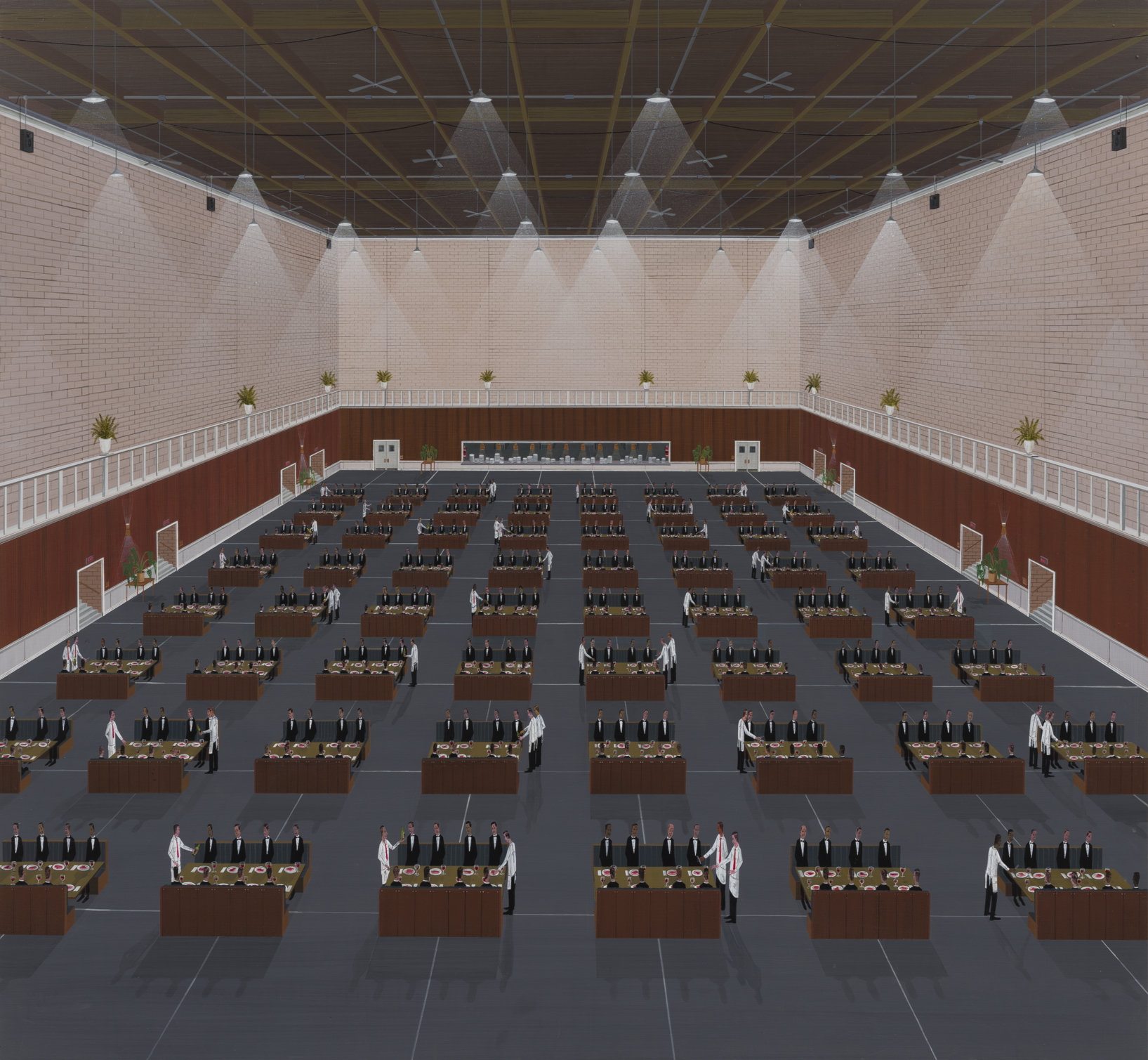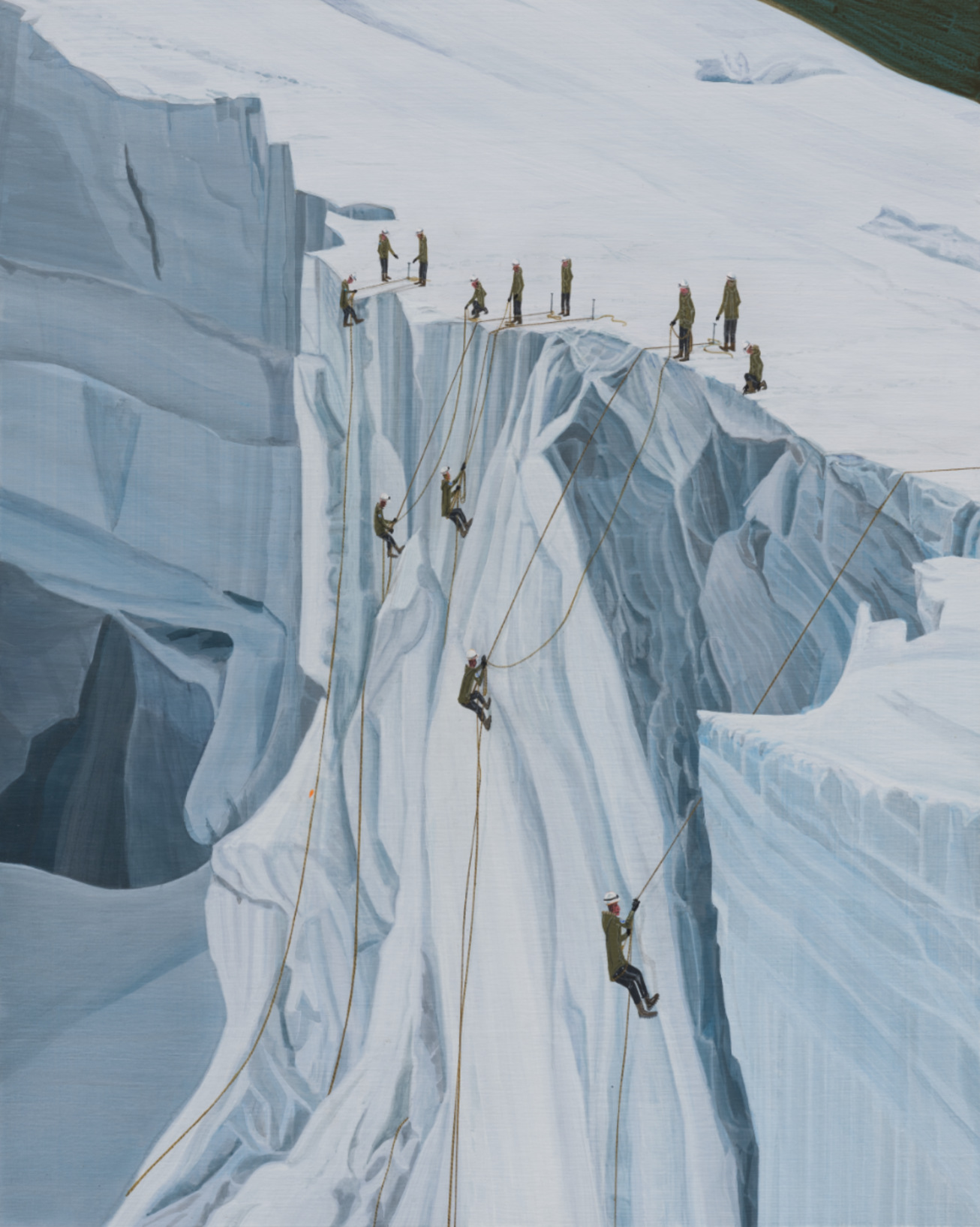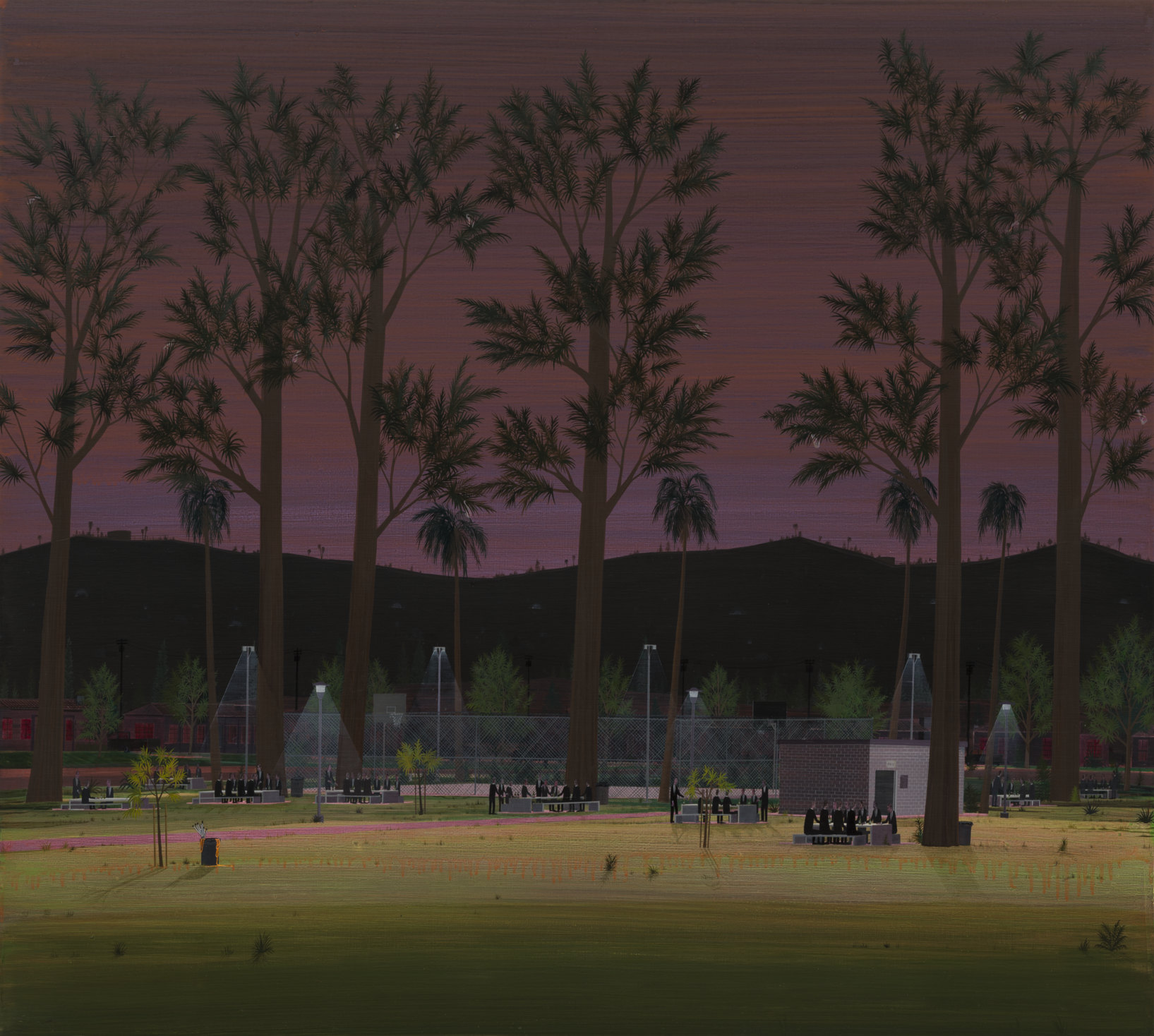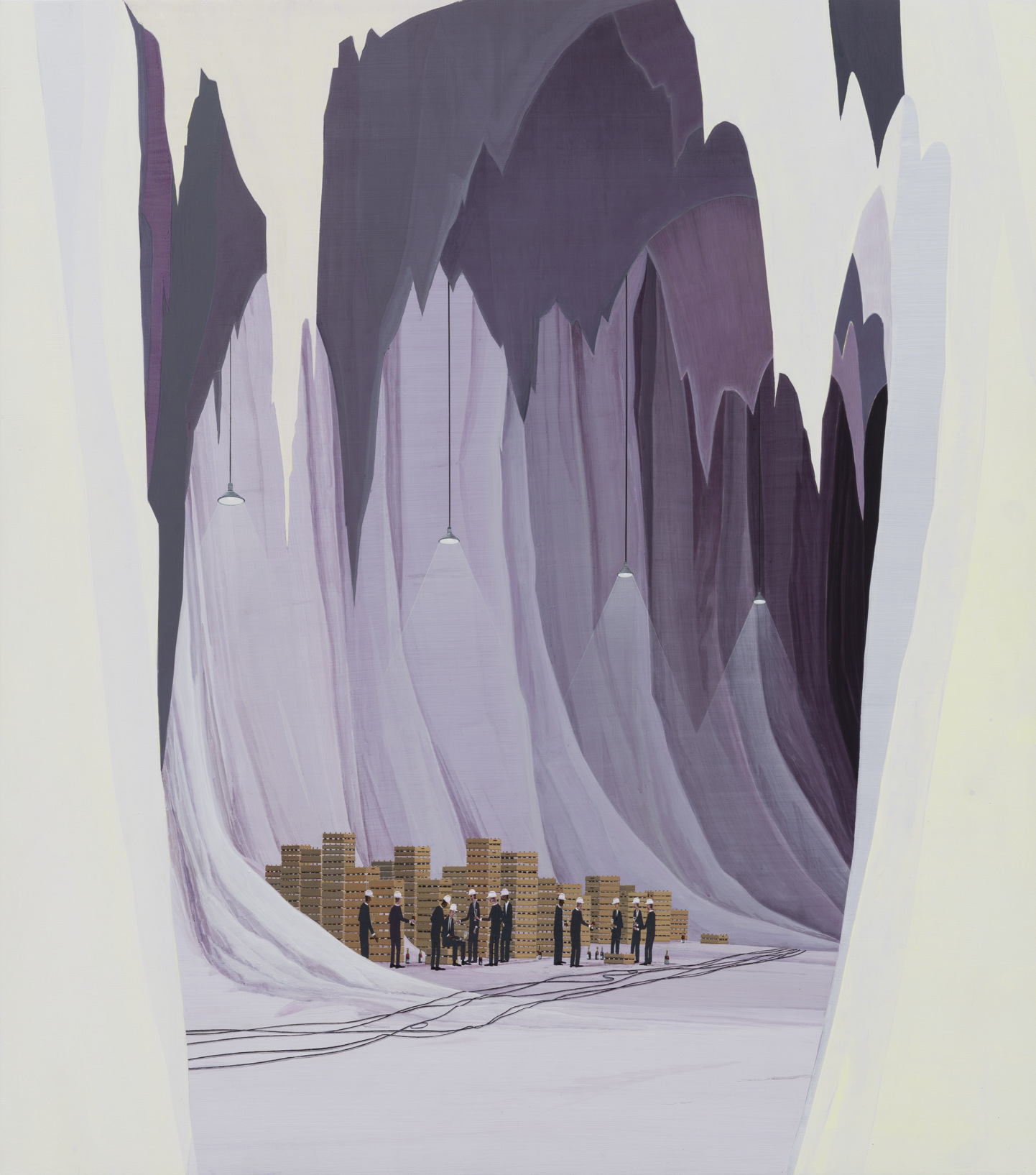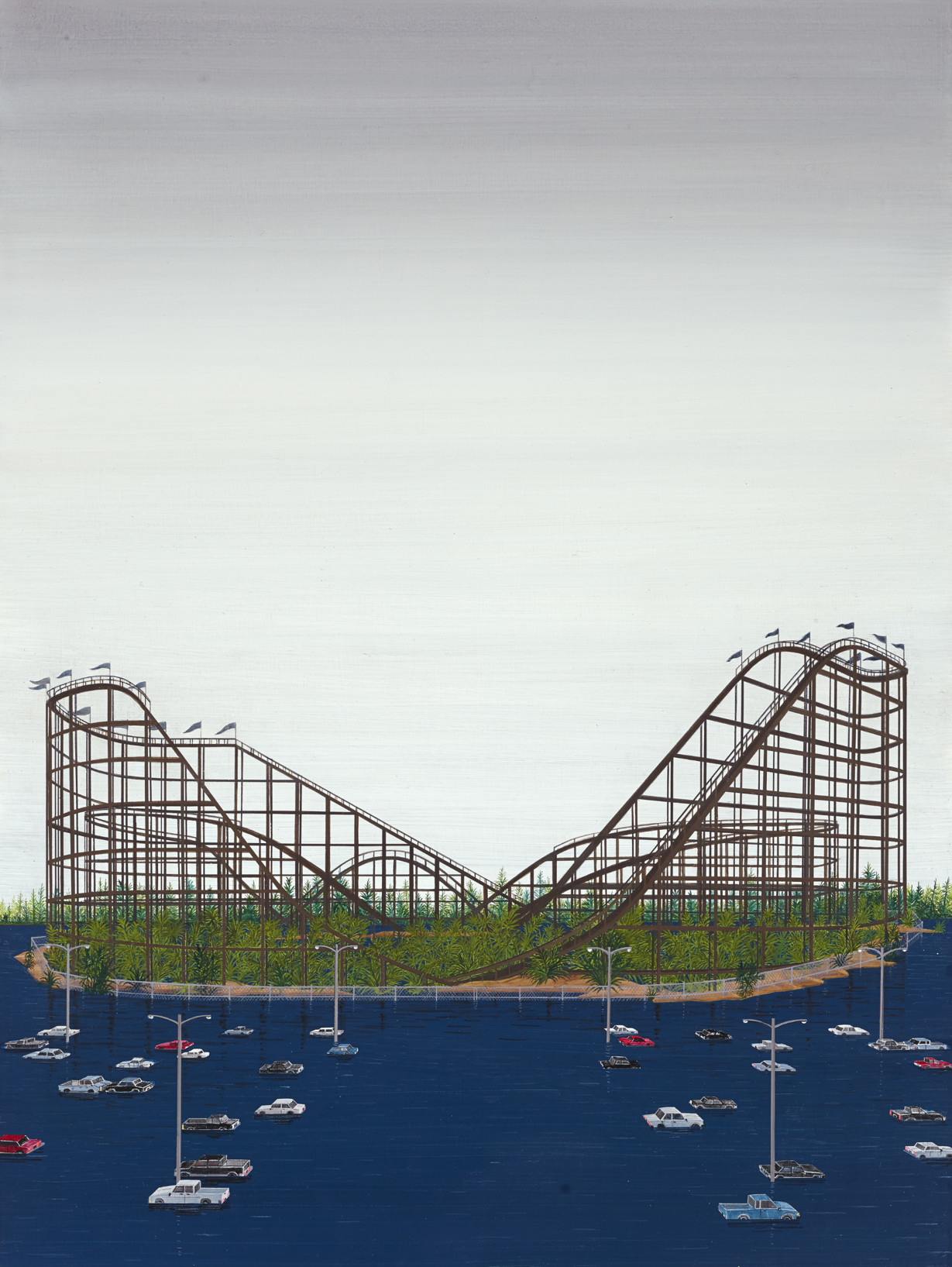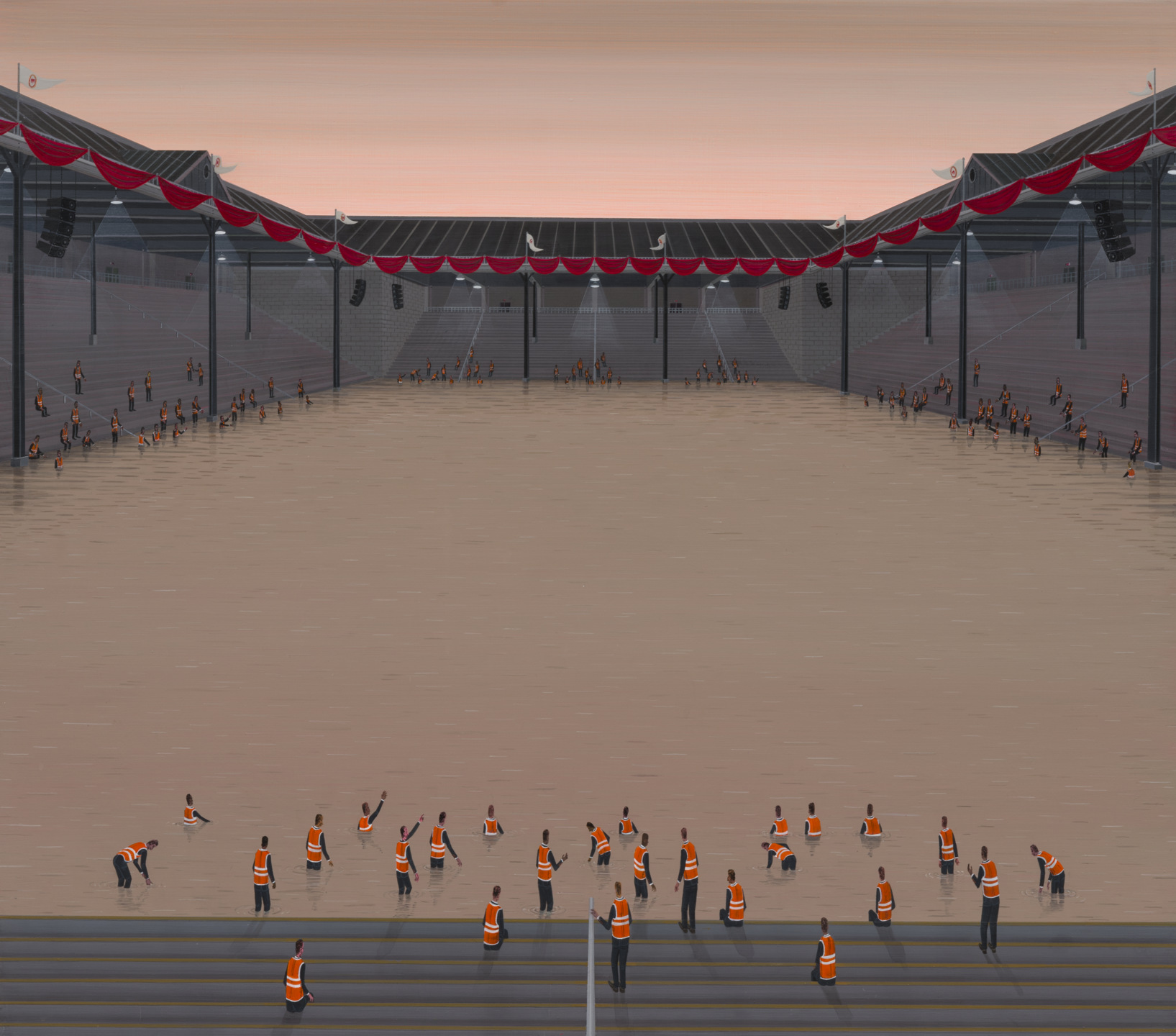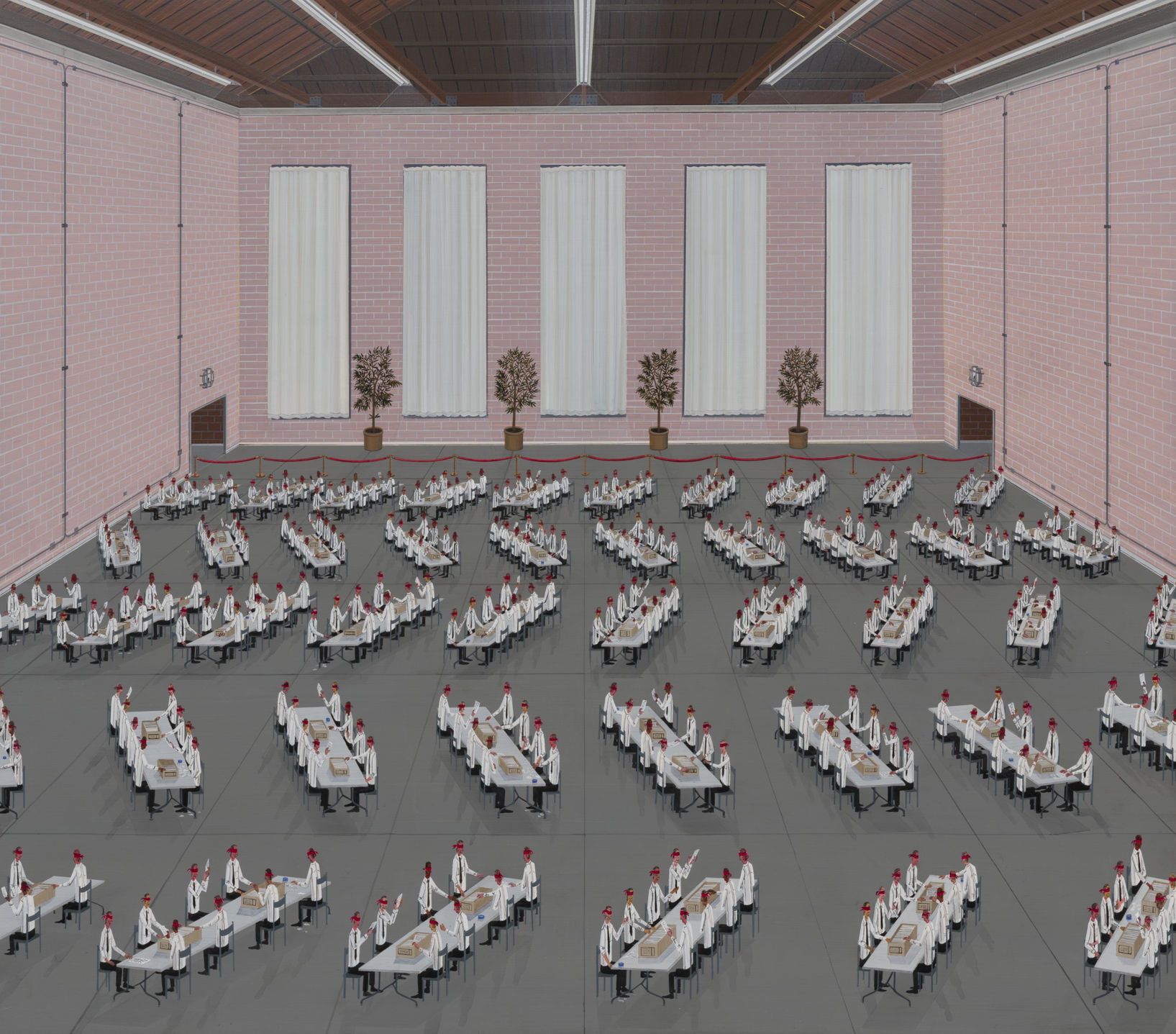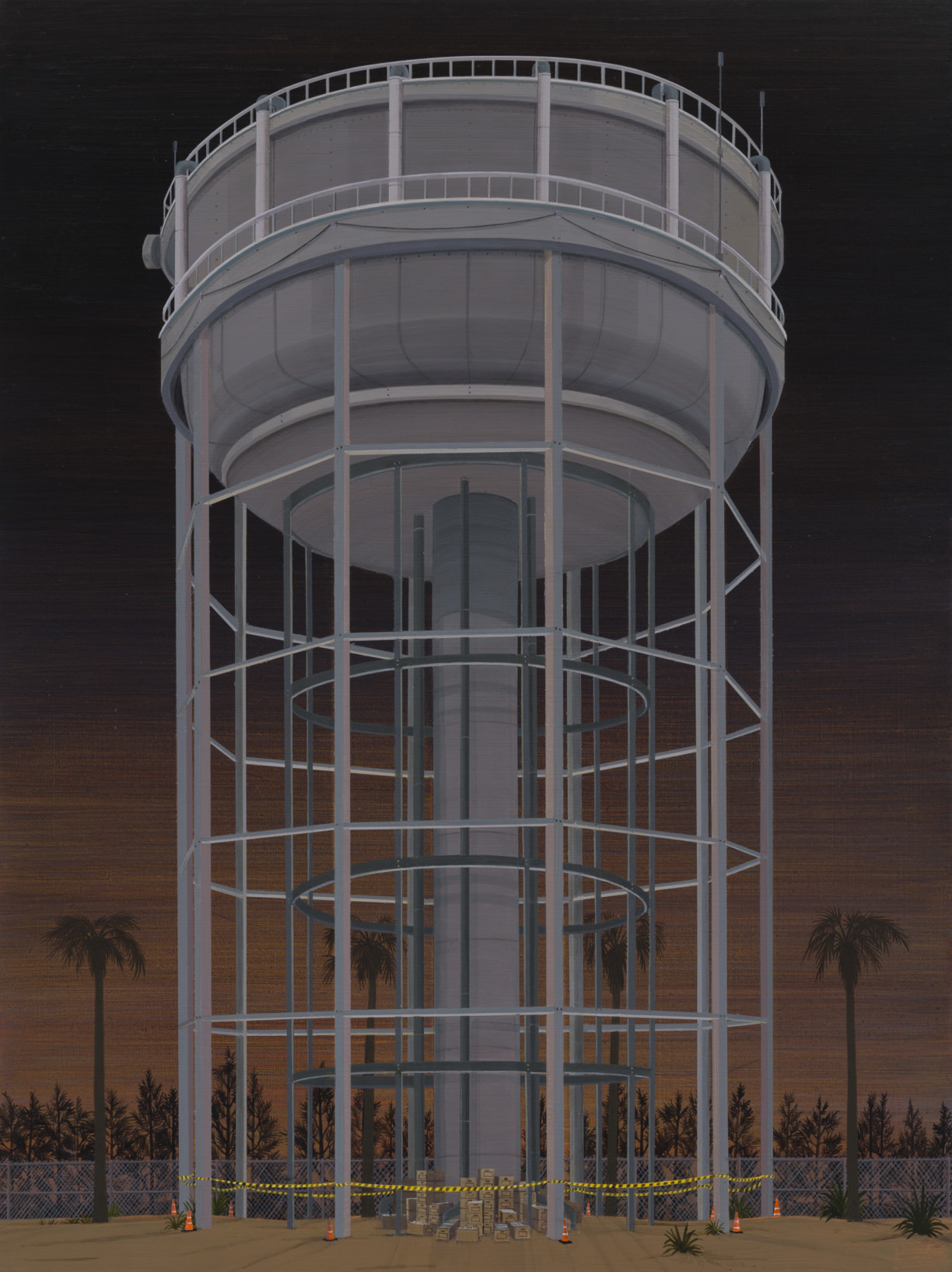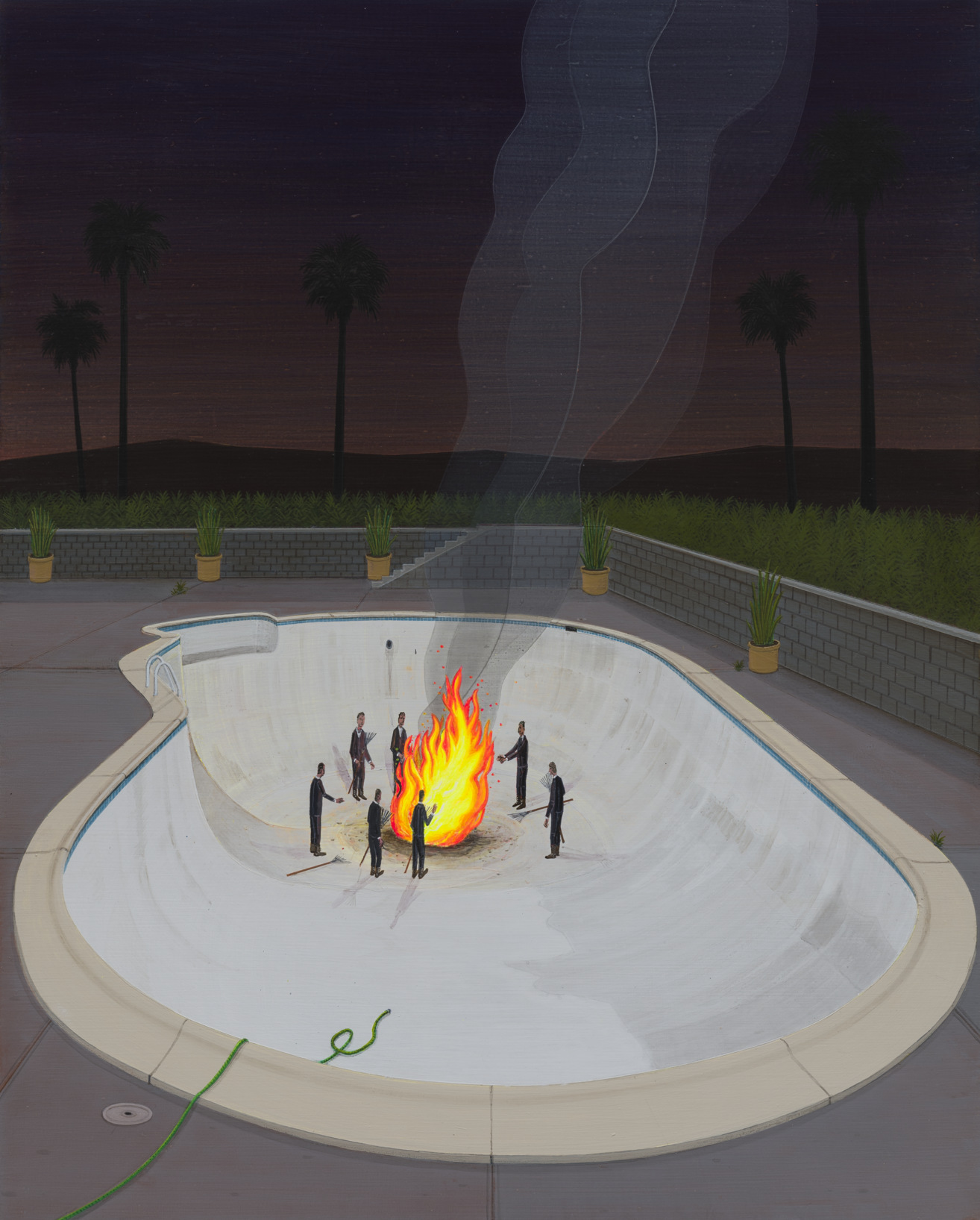Ian Davis
The Mass Ornament
Works
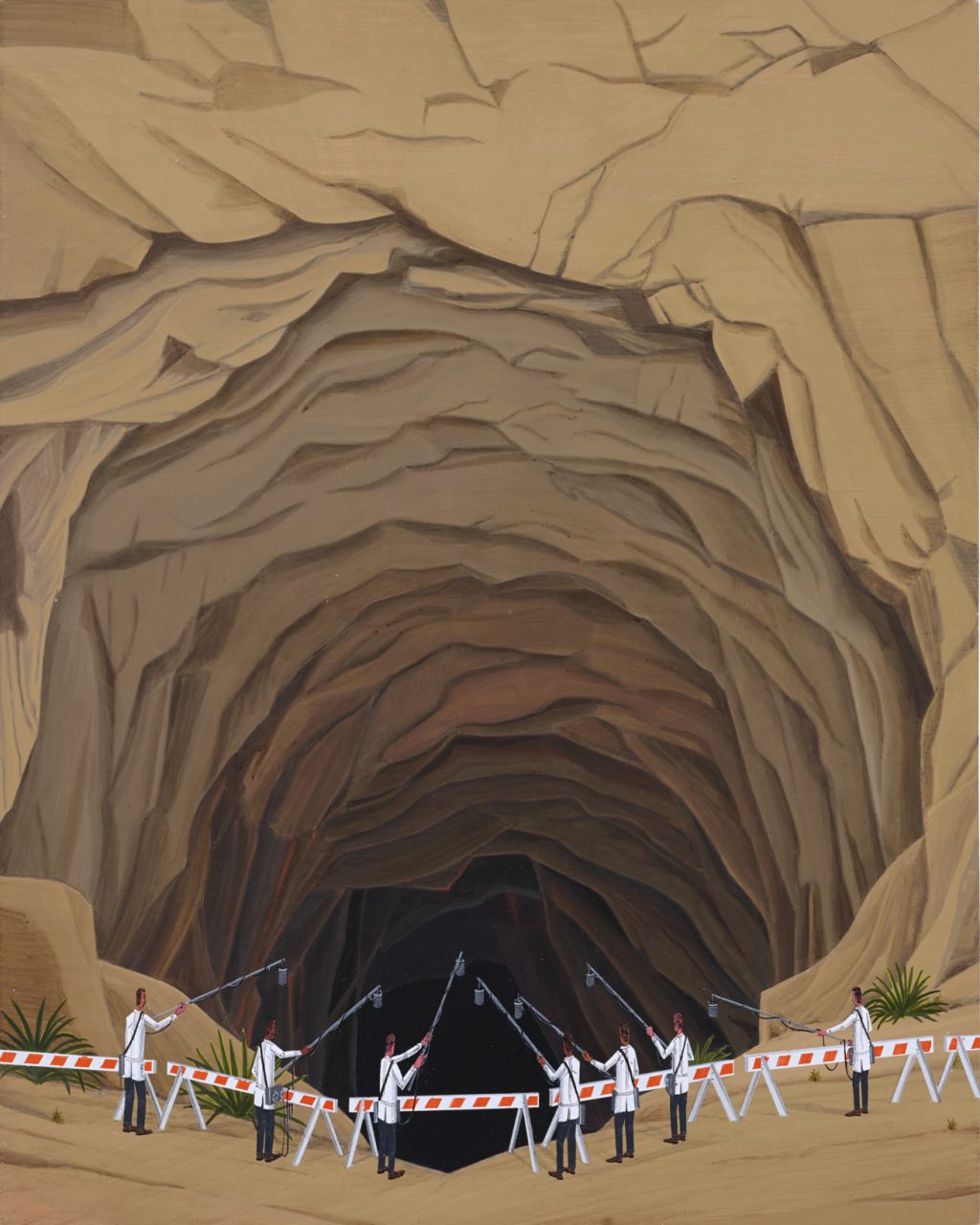
Cavern
2021
Acrylic on panel
51 × 40.5 cm

Apotheosis
2021
Acrylic on panel
127 × 114.5 cm
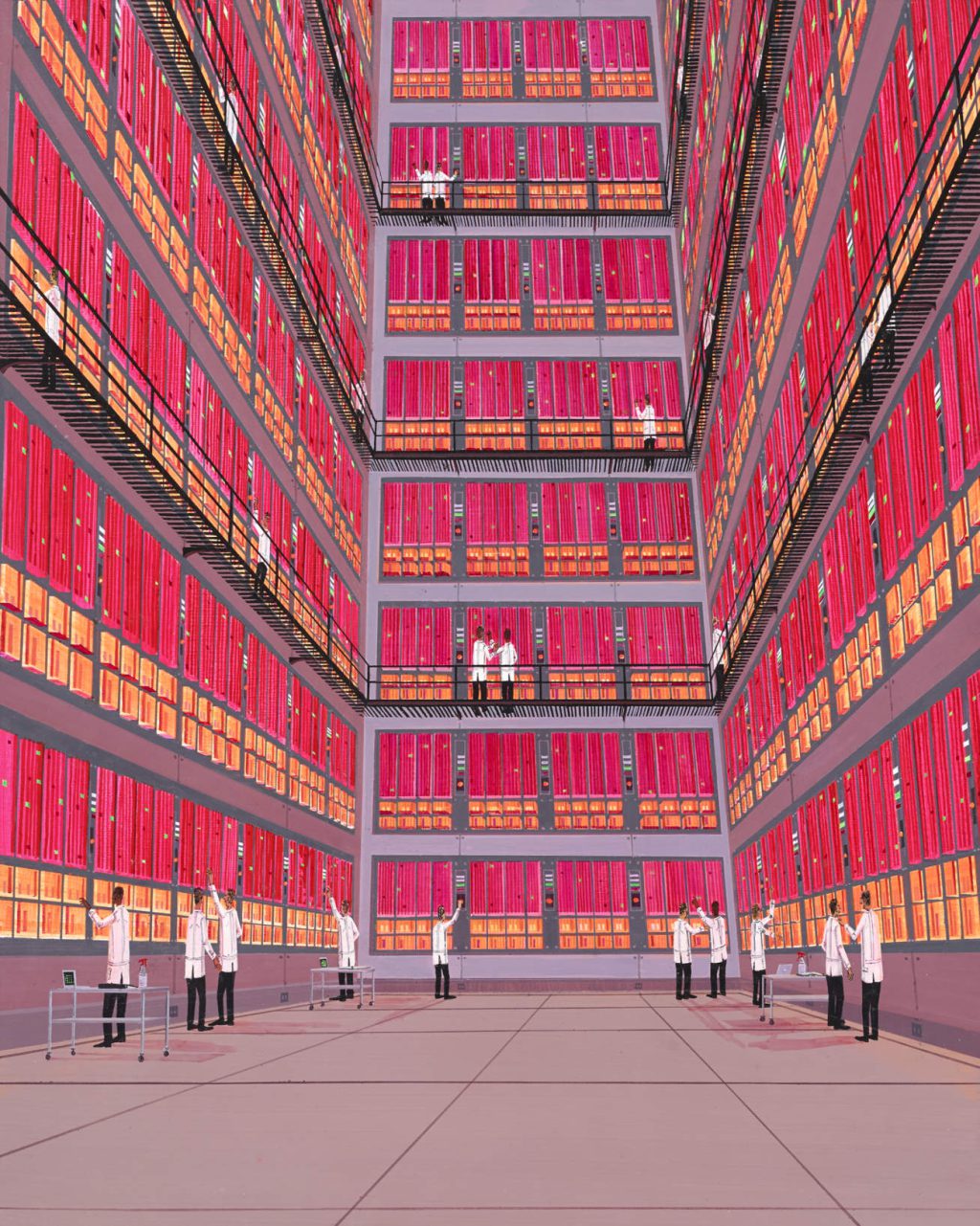
Interior
2021
Acrylic on panel
51 × 40.5 cm

Oil Tankers
2018
Acrylic on linen
167 × 153 cm
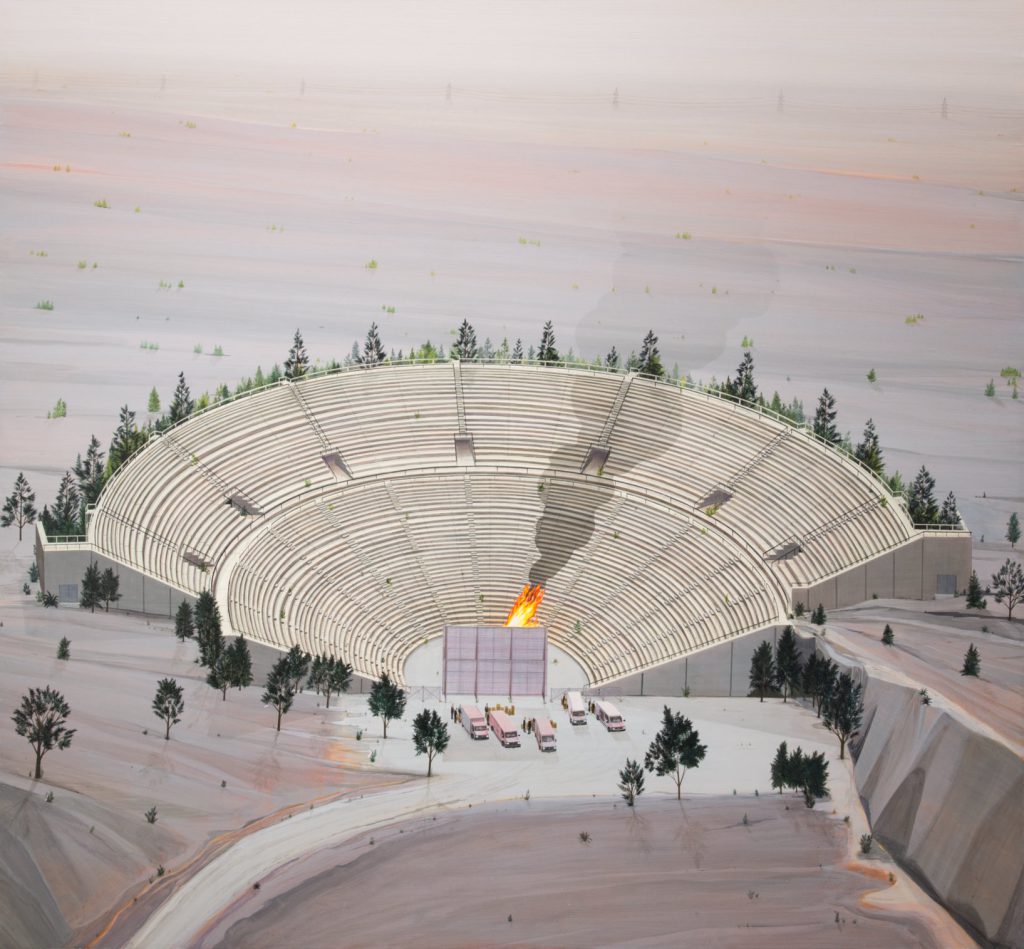
Tragedy
2018
Acrylic on linen
165 × 178 cm

Technocrats
2020
Acrylic on panel
86 × 76 cm

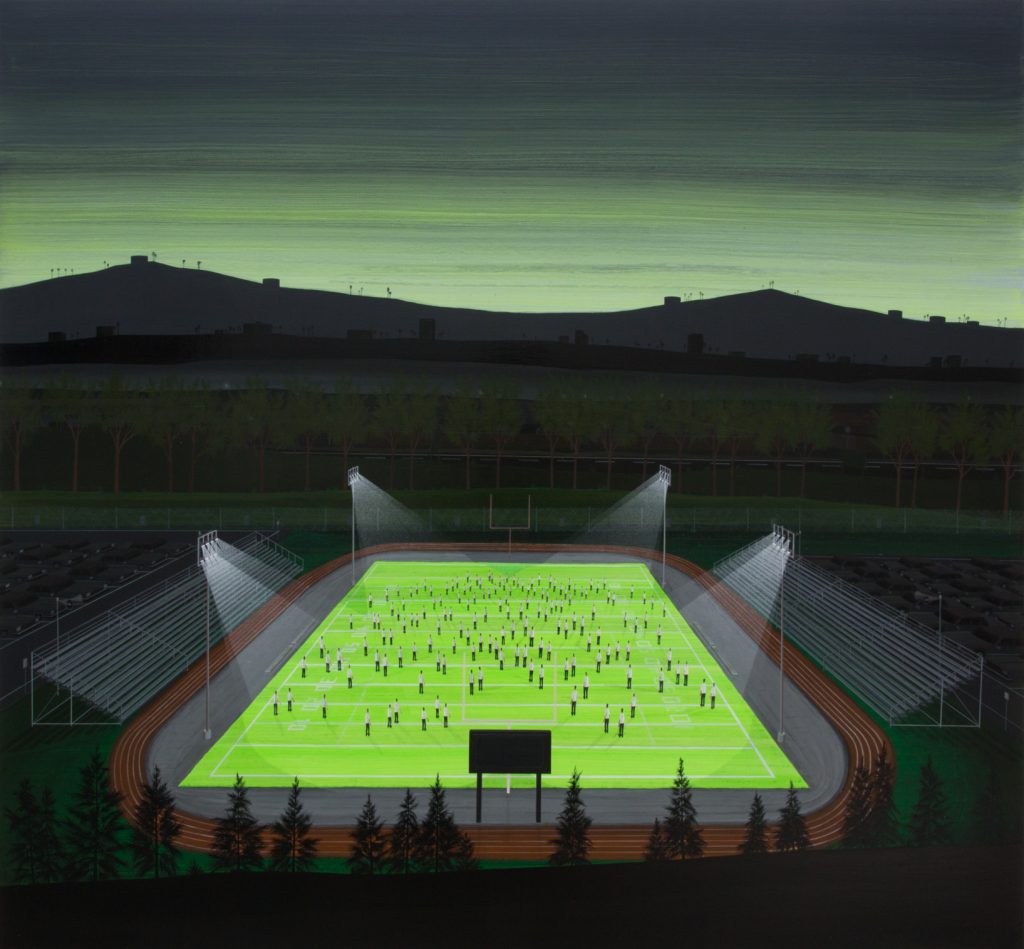
Spectacle
2019
Acrylic on panel
127 × 136.5 cm
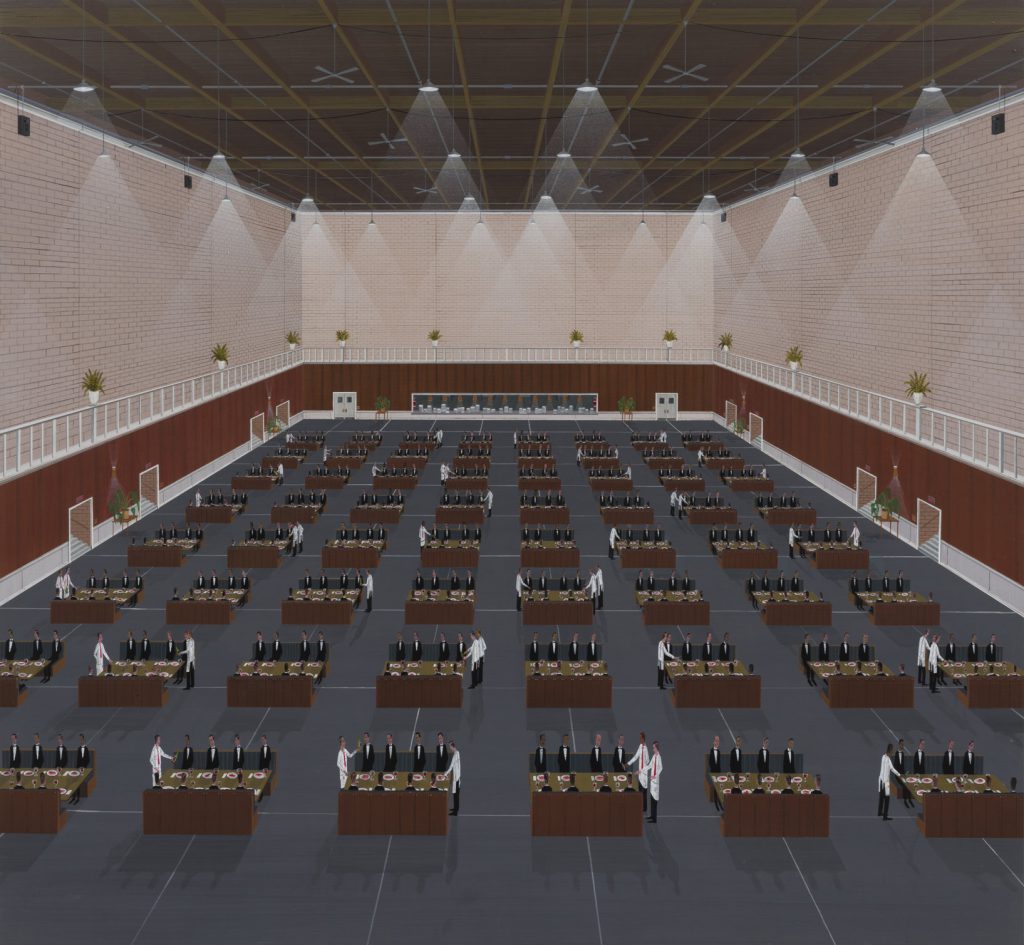
Propagate
2019
Acrylic on panel
127 × 137 cm
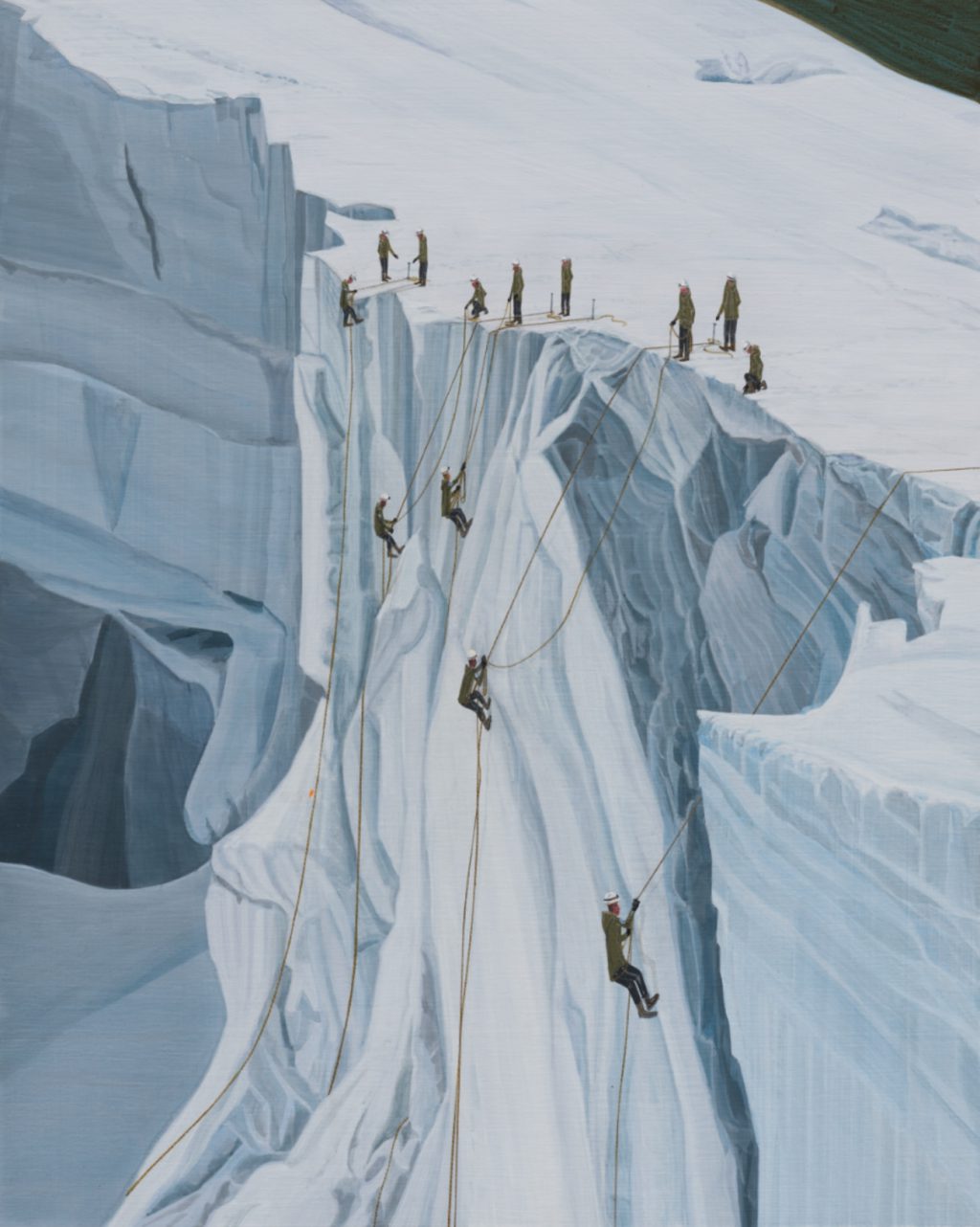
Climbers
2021
Acrylic on panel
51 × 40.5 cm
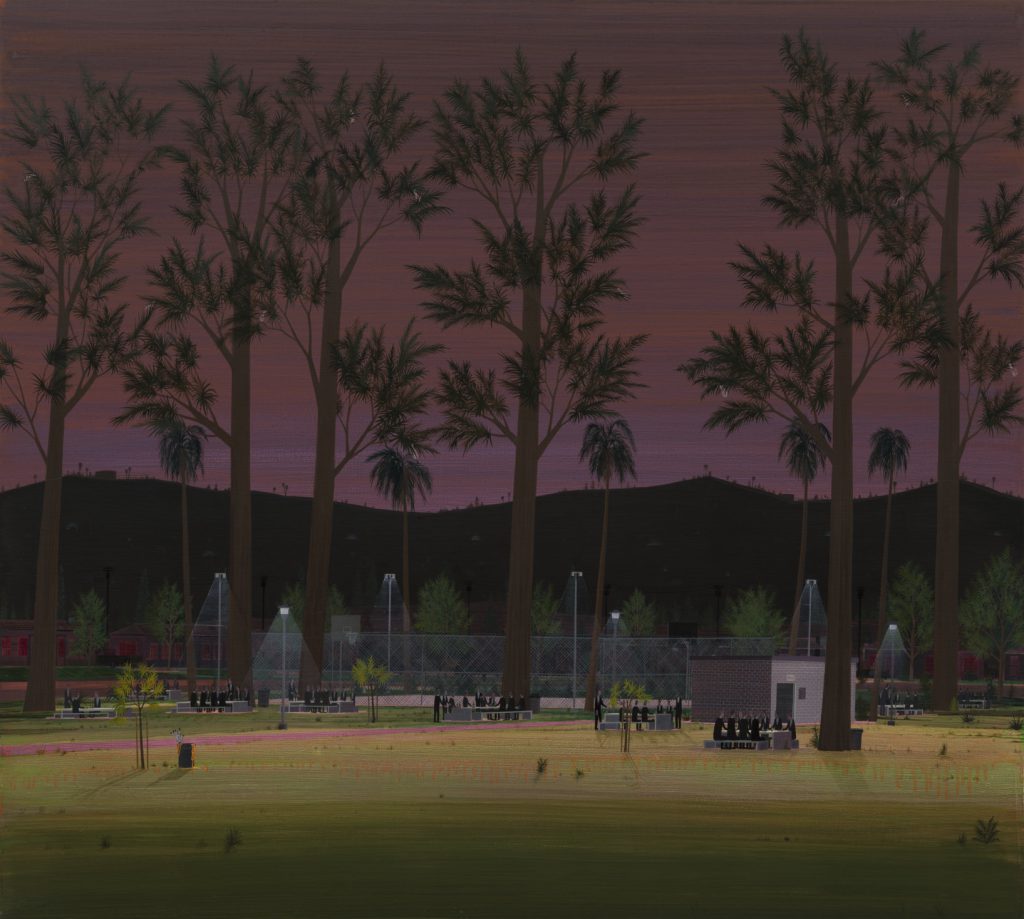
Noturne
2021
Acrylic on panel
91 × 101 cm
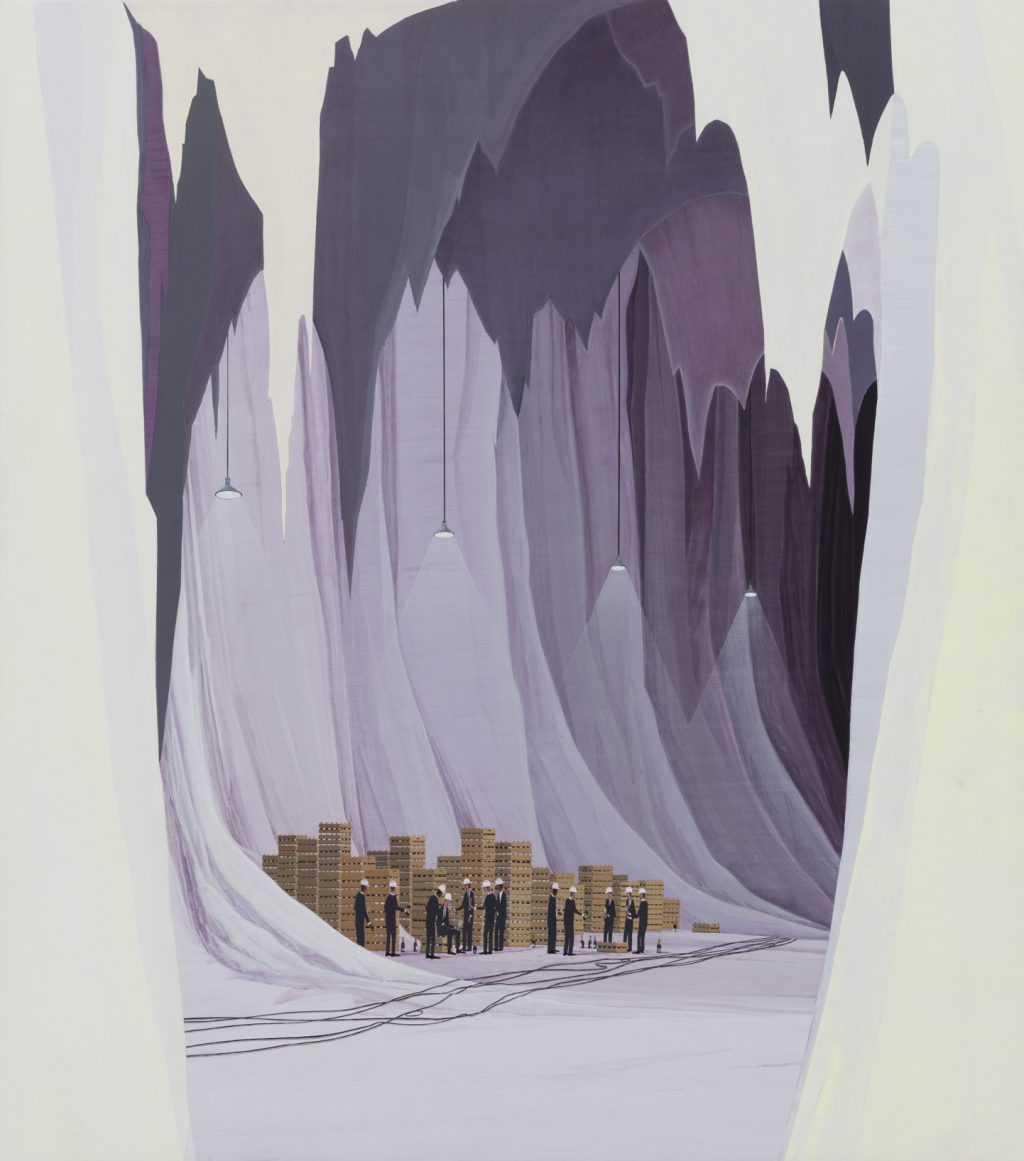
Moët
2021
Acrylic on panel
86.5 × 76 cm
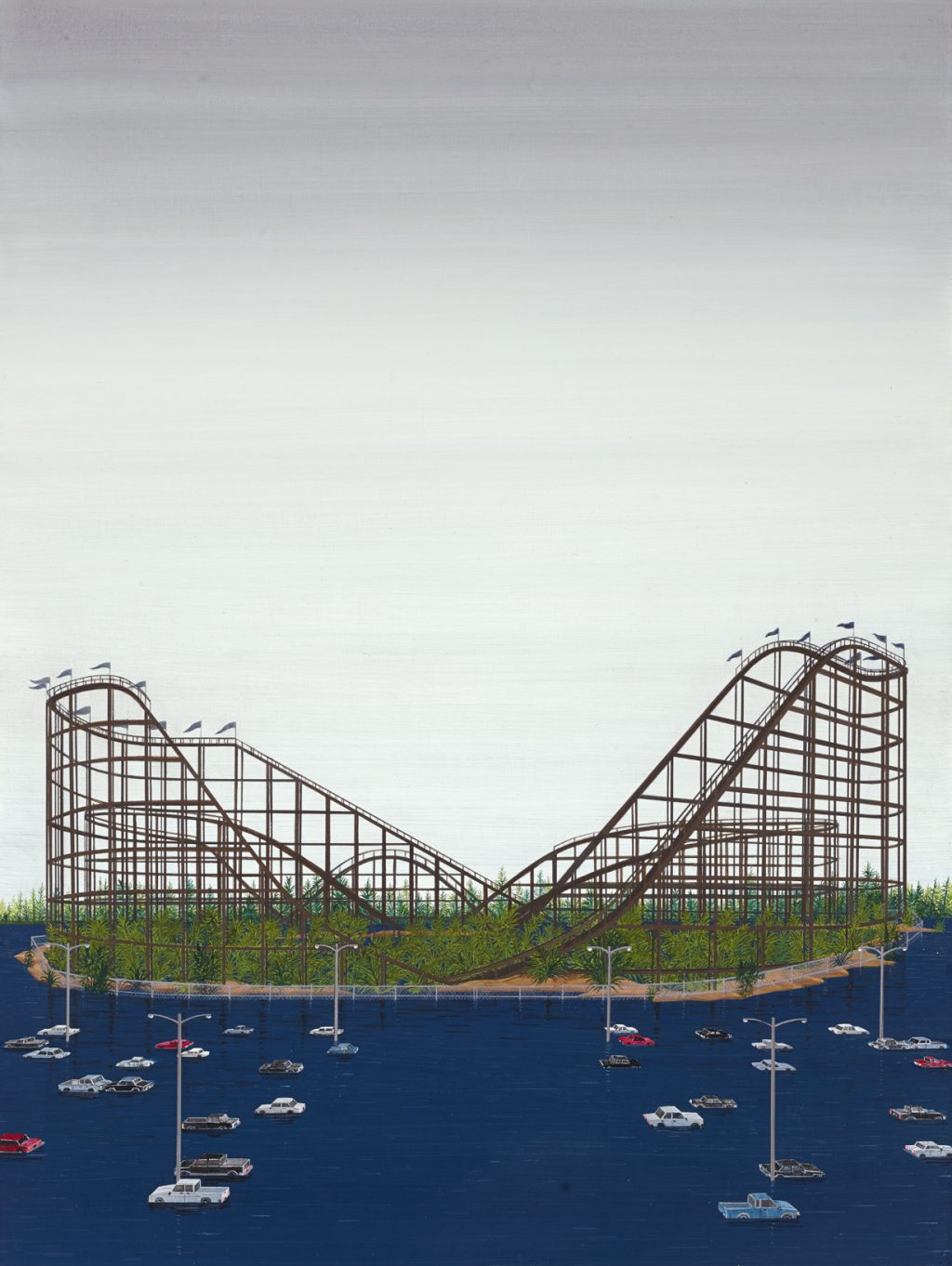
Rollercoaster
2021
Acrylic on panel
61 × 46 cm
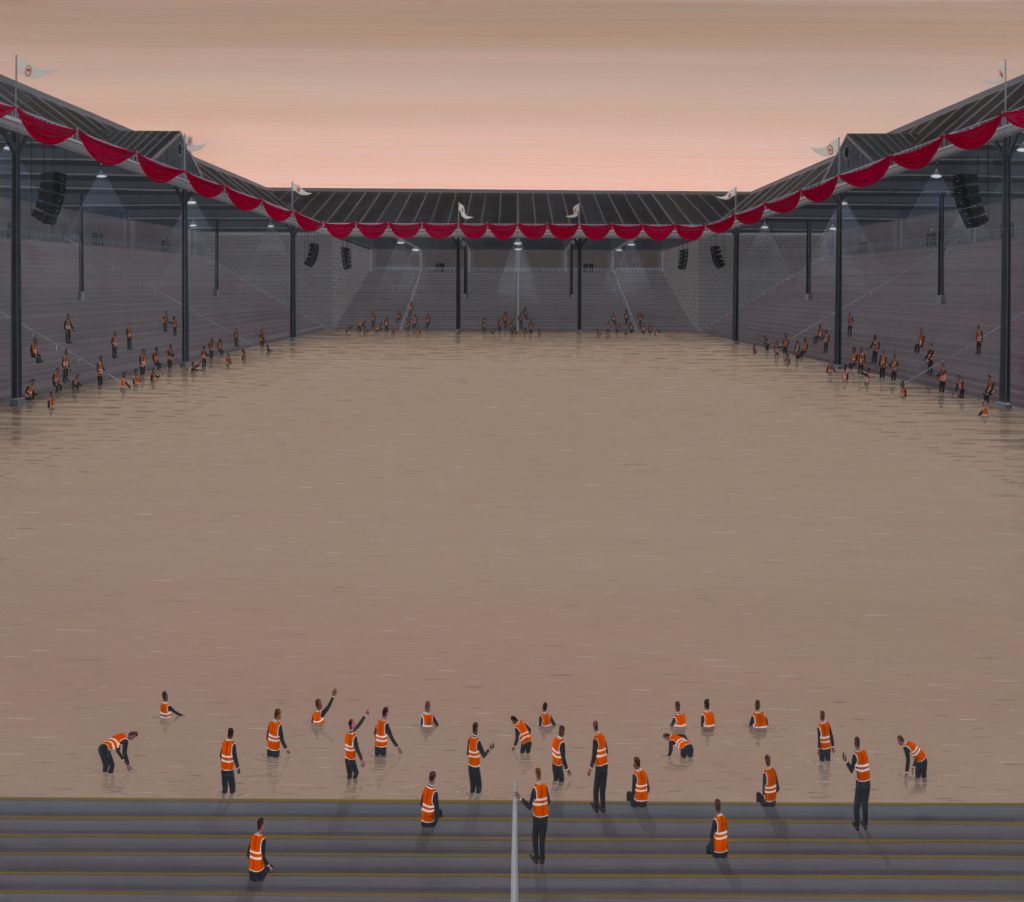
And This Day
2022
Acrylic on panel
76 × 86.5 cm
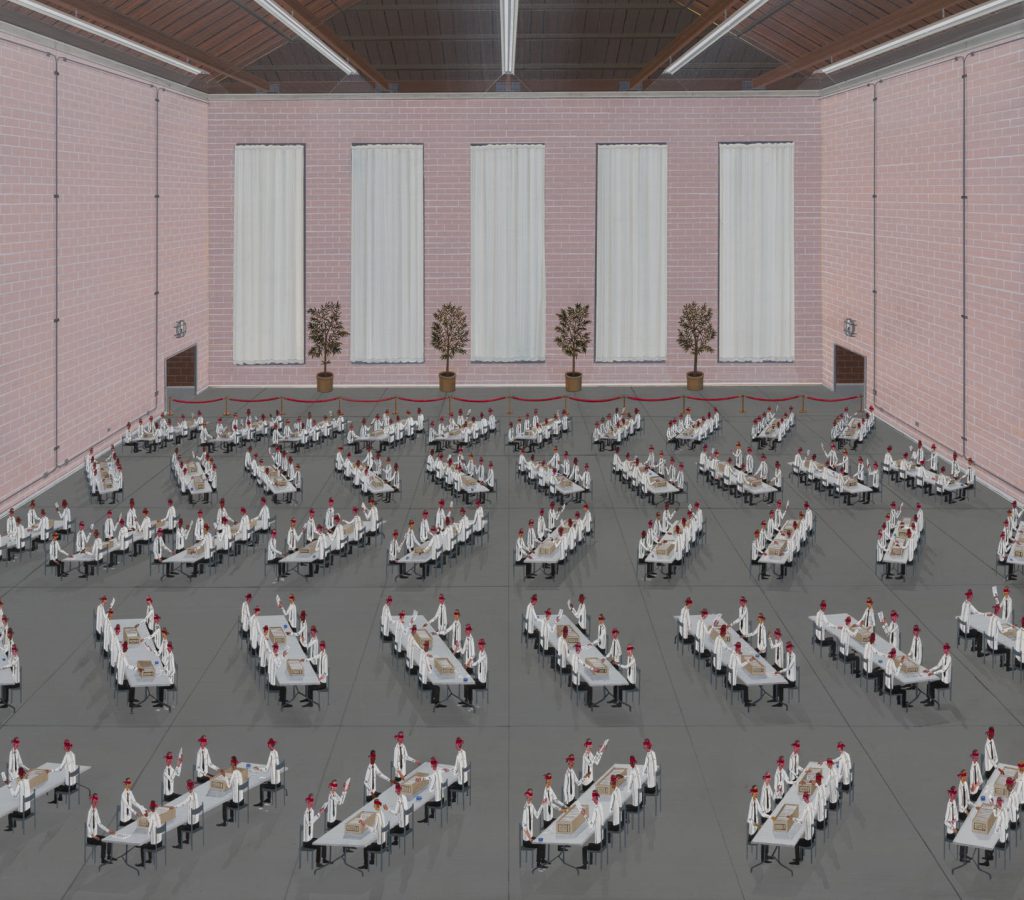
Agenda
2022
Acrylic on panel
76 × 86.5 cm
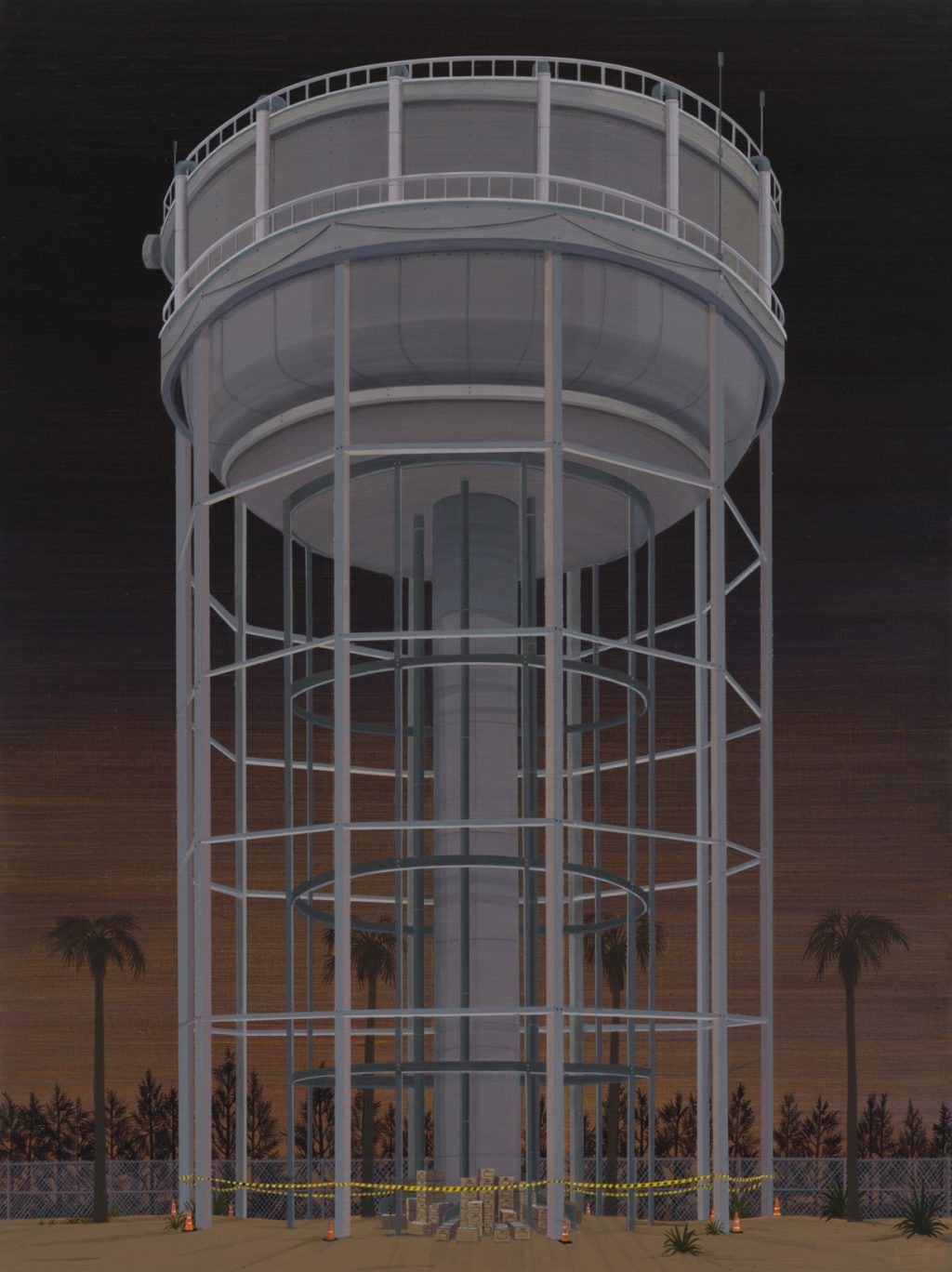
Water Tower
2021
Acrylic on panel
61 × 45.5 cm
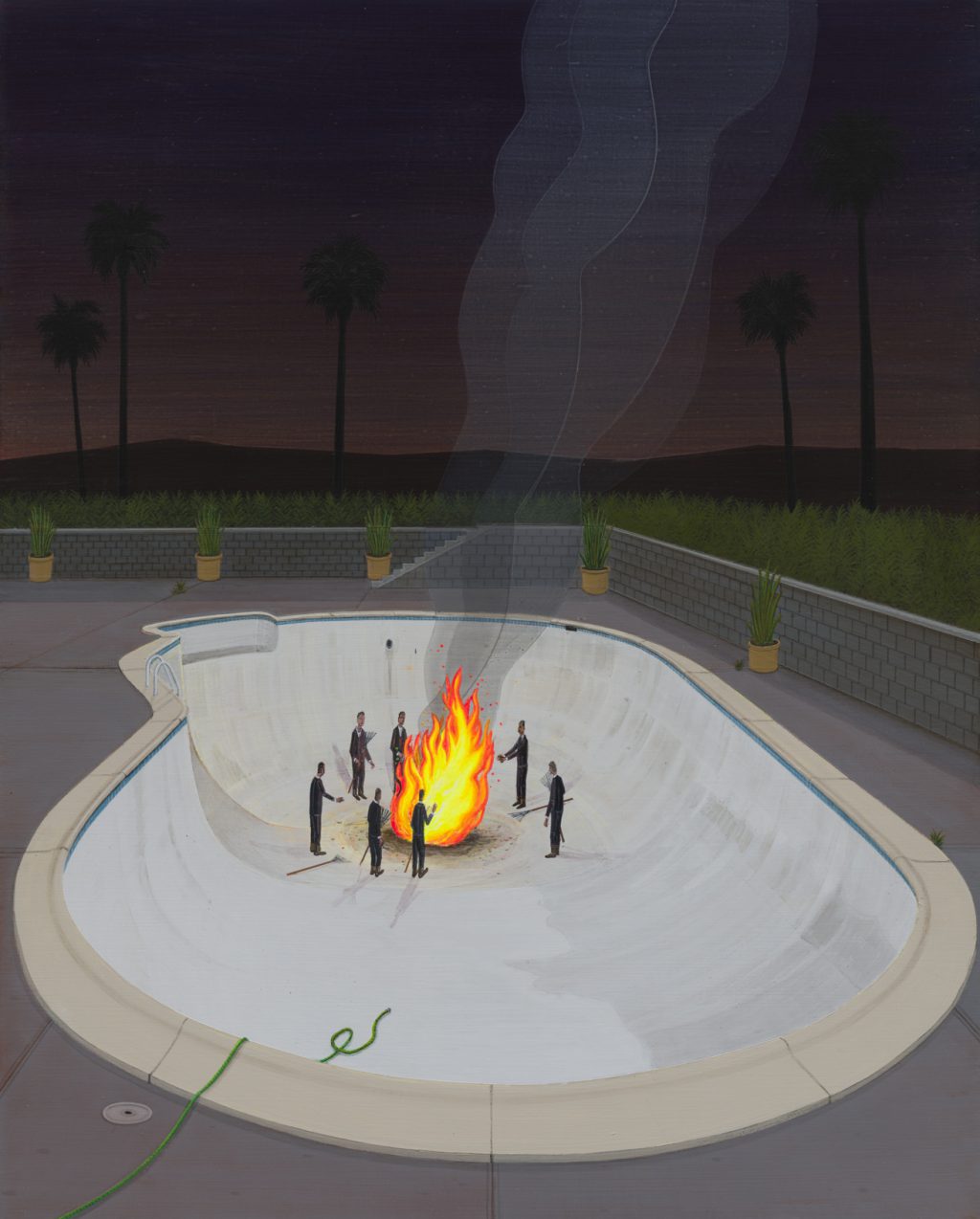
Bonfire
2022
Acrylic on panel
51 × 40.5 cm
Text
Galerie Judin is delighted to present The Mass Ornament, American artist Ian Davis’ (*1972) first-ever exhibition in Berlin. On view are 16 paintings, mostly on panel – a few on linen, and all created within the last four years. They confront us with obscure and uncanny situations: A giant, flickering server fed with data by countless employees; the exploration of the acoustics of a mysterious cave; boxes stowed away in glacial caverns, and something – possibly evidence – burned in an antique-like arena or in the bed of a drained pool. The elaborate slopes of a rollercoaster stick out of the flooded parking site, the brightly lit playing field of a stadium is littered with people – while the stands remain deserted. Just as puzzling as the situations in Davis’ compositions are the stereotyped characters crowding them. They are faceless, generic men in lab coats or suits. While these austere protagonists point to the seriousness of the situations unfolding, it remains completely obscure as to who is doing what and with what intention.
Davis’ bureaucrats usually come in herds and packs, and as such the artist likes to arrange them somewhat ornamentally. His work thus seems like an illustration of the famous essay by the German sociologist Siegfried Kracauer with the telling title “The Mass Ornament” (1927). In it, Kracauer states that the ornament of masses can always tell us more about a particular time than any contemporary theory: “The position that an epoch occupies in the historical process can be determined more strikingly from an analysis of its inconspicuous surface-level expressions than from that epoch’s judgments about itself.” Supposedly, if one looks from a slightly elevated angle at people and at how they – as private individuals, professionals, and citizens – are arranged into masses, one could learn everything about their relationships, organization, and dependencies. In this sense, Davis’ “mass ornaments” may be read as mirror images of today’s society and its structures. They reveal something we do not yet fully grasp: that our own time is shaped by an extreme division of labor and the resulting interchangeability of “human capital” – while the occurrence of catastrophes, ranging from natural disasters to terrorism, is on the rise.
Continue reading
Ian Davis studied Fine Arts at the Arizona State University and the Skowhegan School of Painting and Sculpture. His paintings are featured in the collections of the Nerman Museum of Contemporary Art in Overland Park (Kansas), the Kemper Museum of Contemporary Art in Kansas City (Missouri) and the Sheldon Museum of Art in Lincoln (Nebraska), amongst others. After living in upstate New York for many years, Davis relocated to Los Angeles in 2015. On the occasion of the artist’s exhibition with Galerie Judin, a first comprehensive monograph with an essay by curator Krist Gruijthuijsen was published by Verlag der Buchhandlung Walther und Franz König.
Catalogue
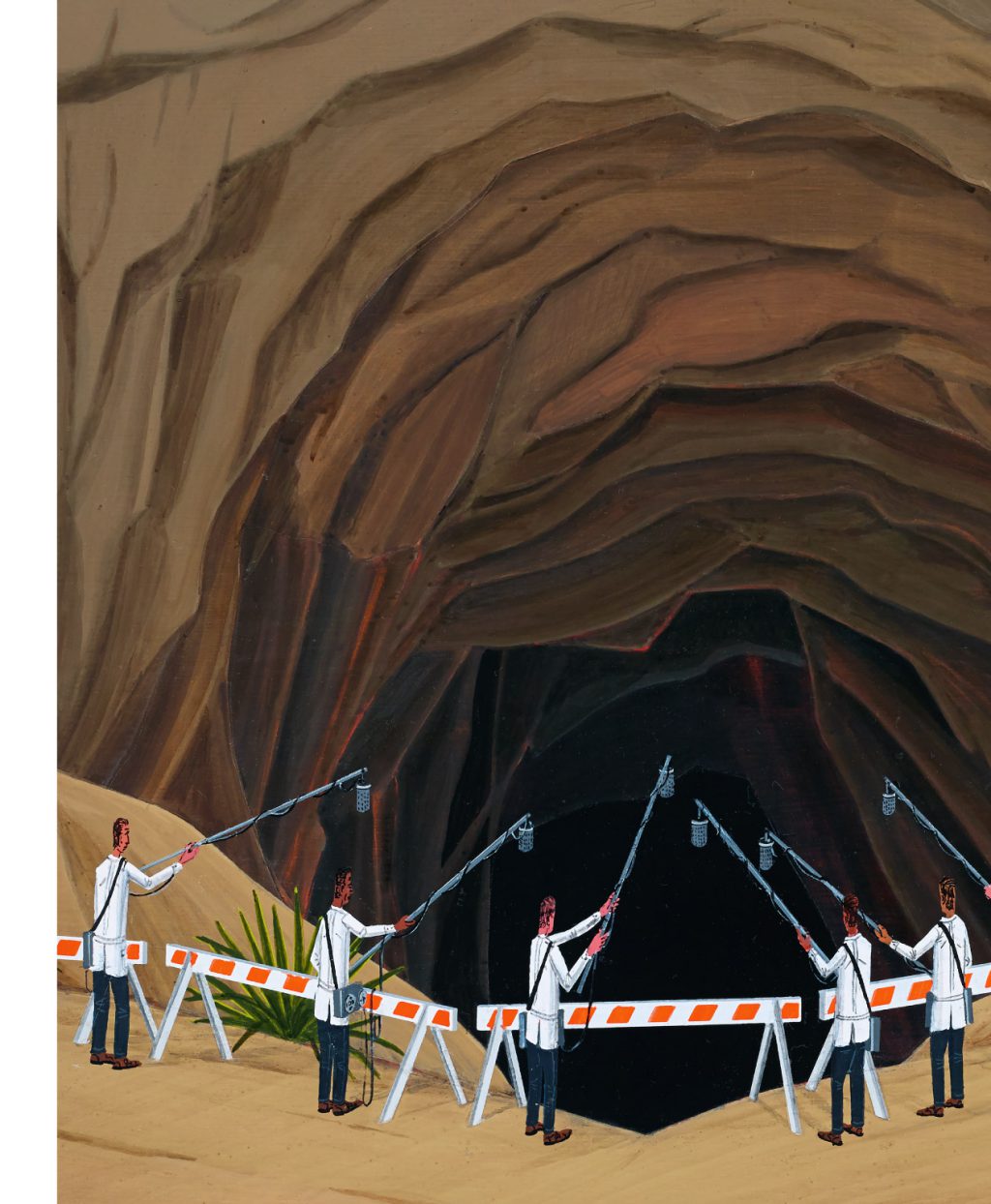
The Mass Ornament
Edited by Juerg Judin and Pay Matthis Karstens
Text by Krist Gruijthuijsen
In English
295 × 240 mm
128 pages, hardcover
80 color ill.
Published by Verlag der Buchhandlung Walther und Franz König, Cologne 2022
ISBN: 978-3-7533-0273-7
